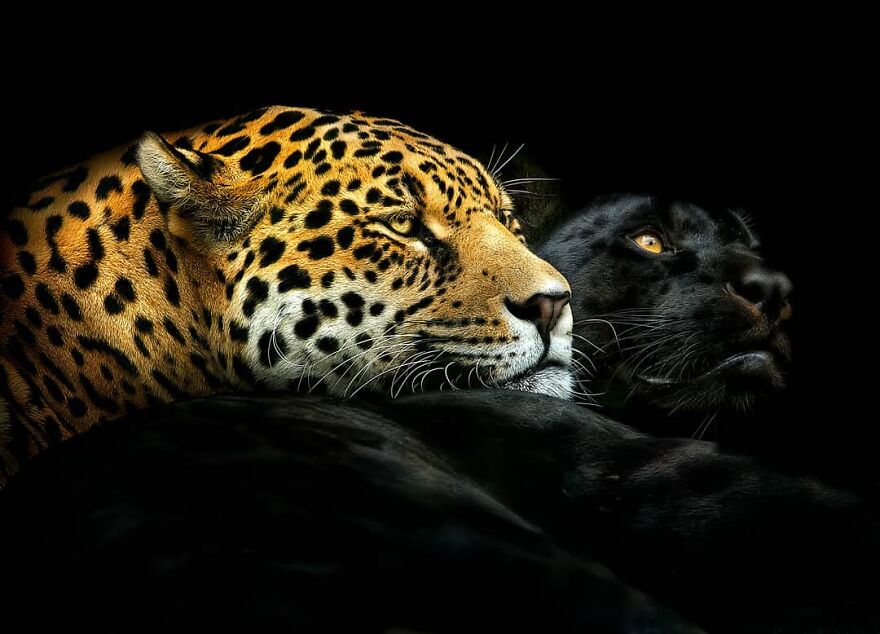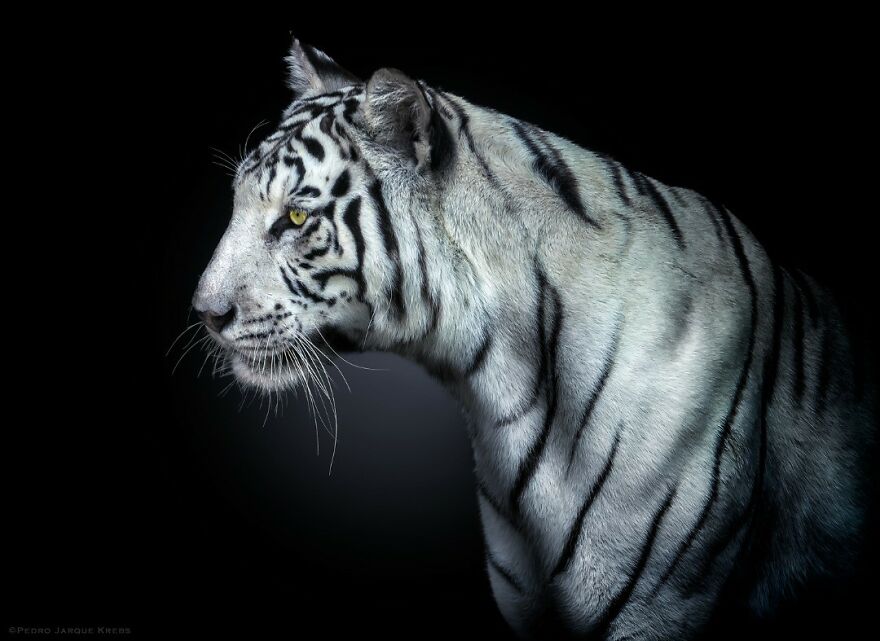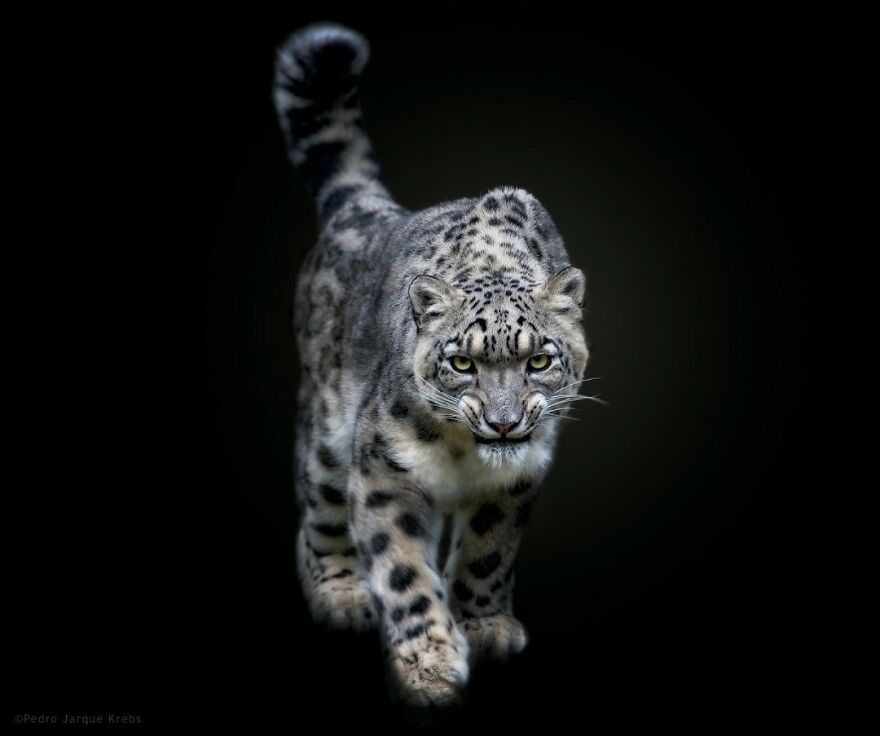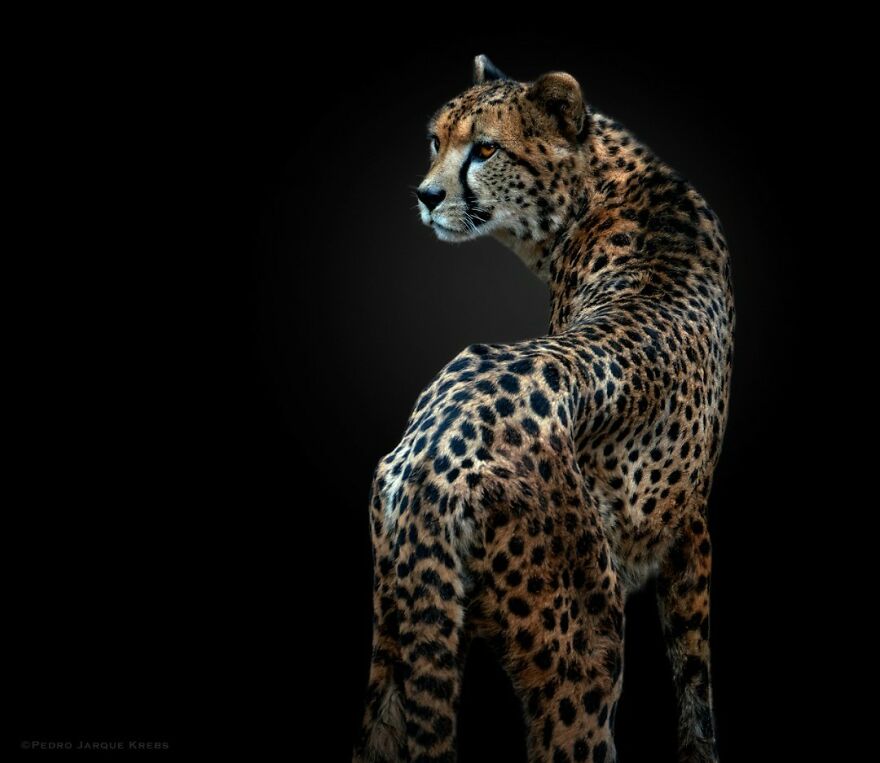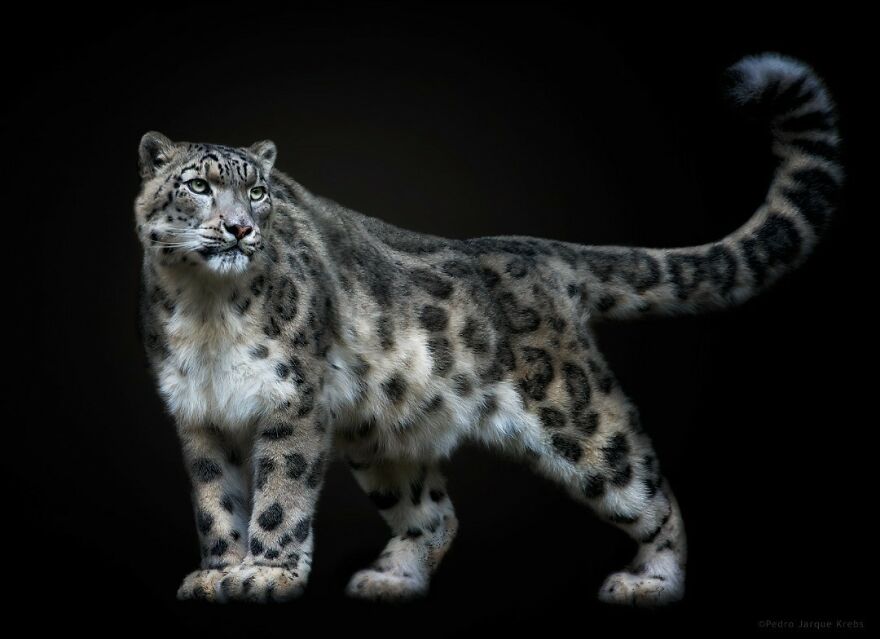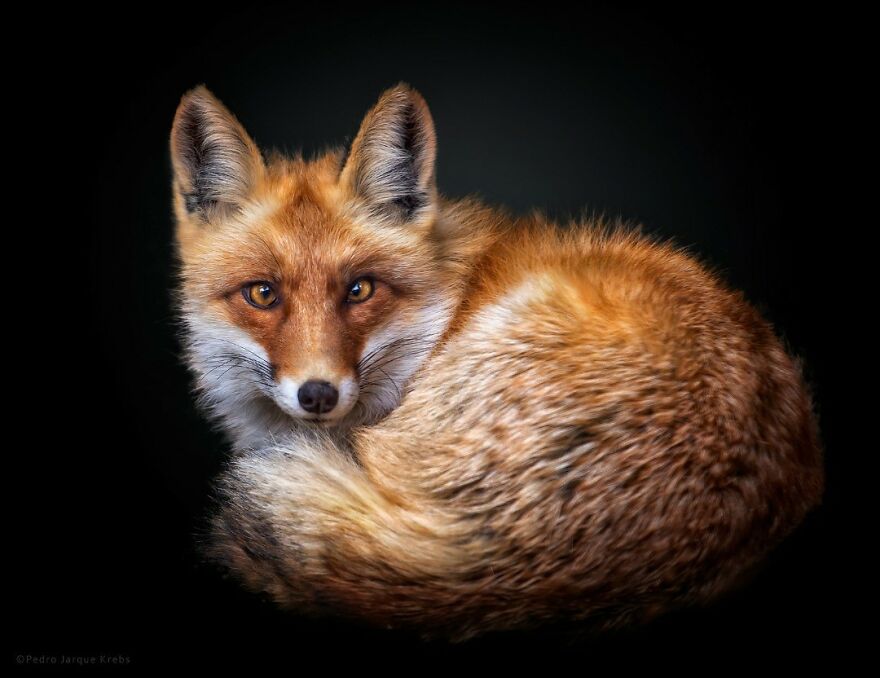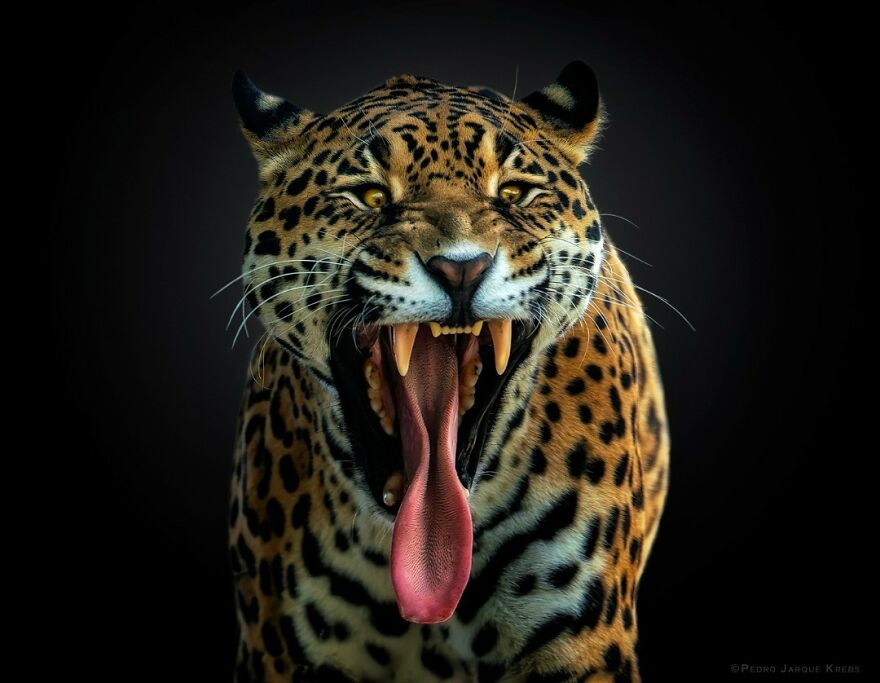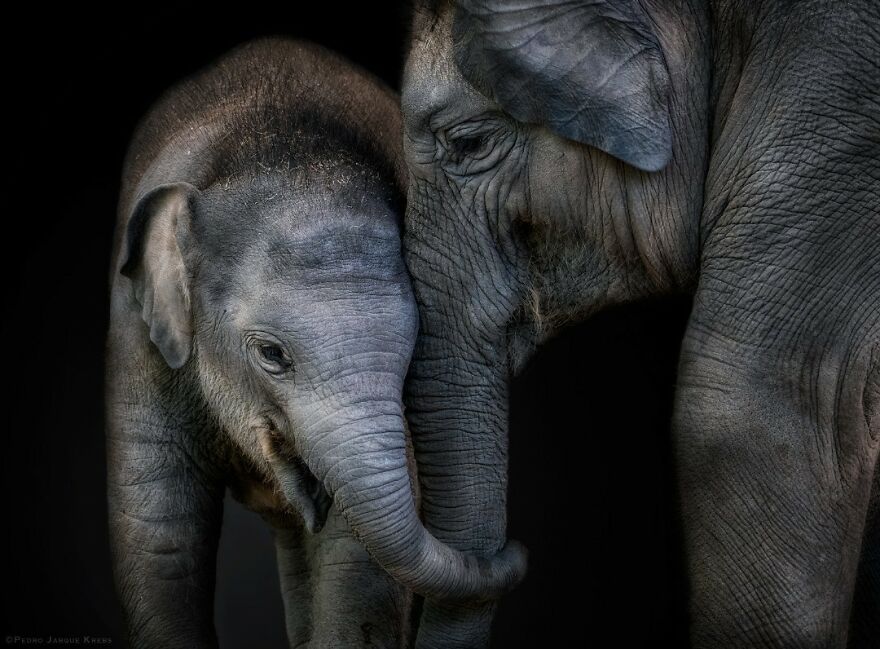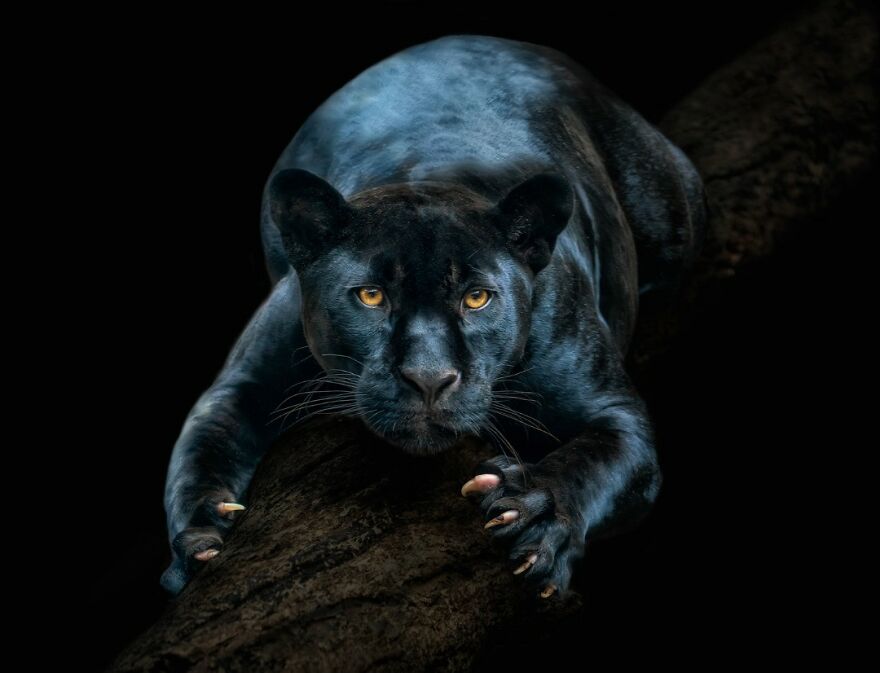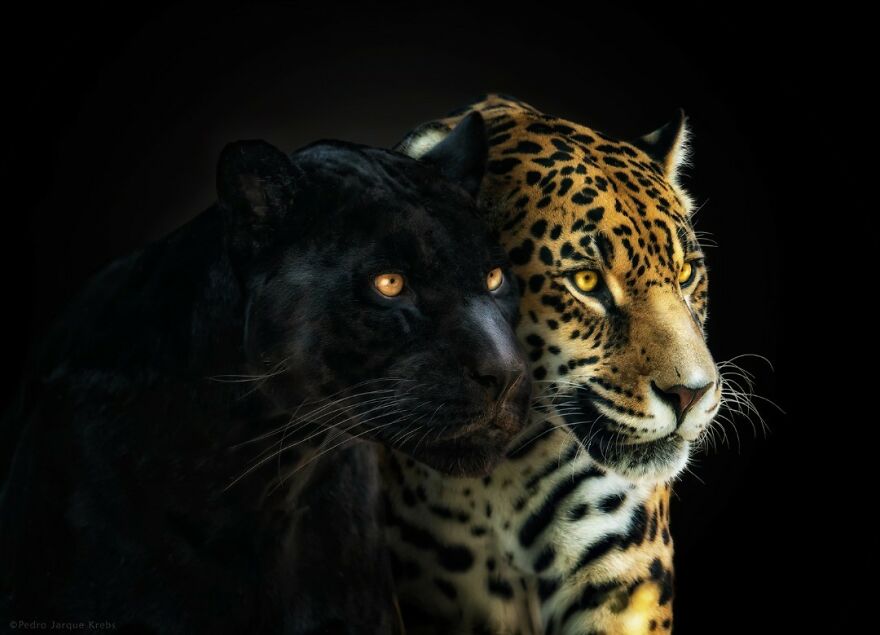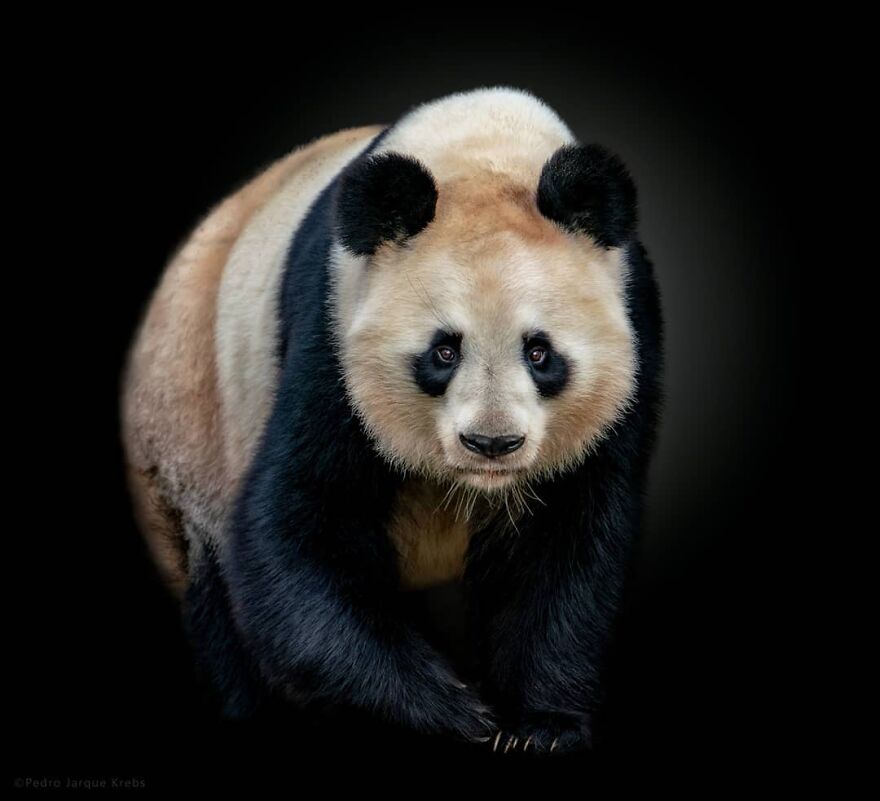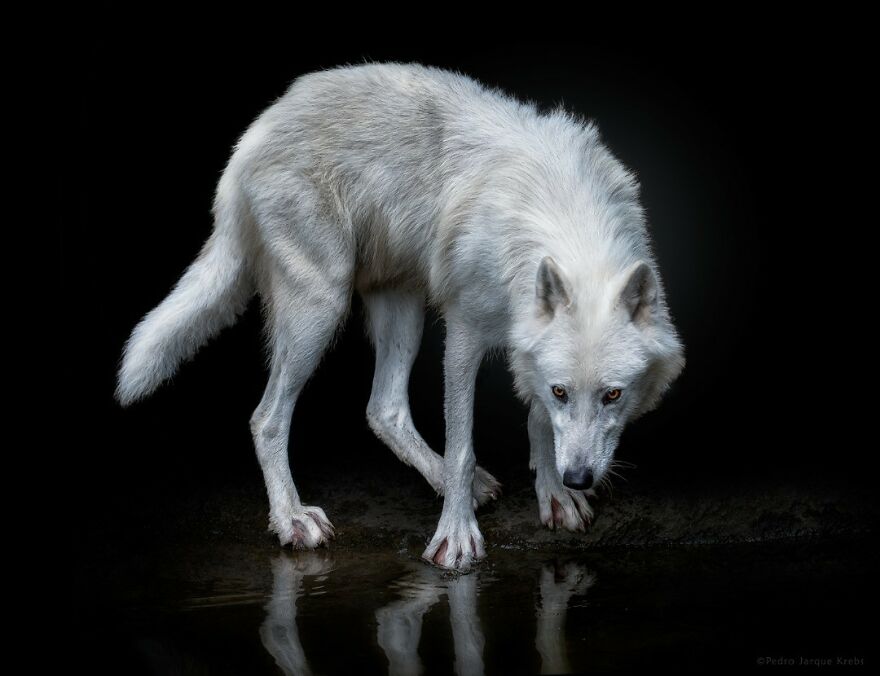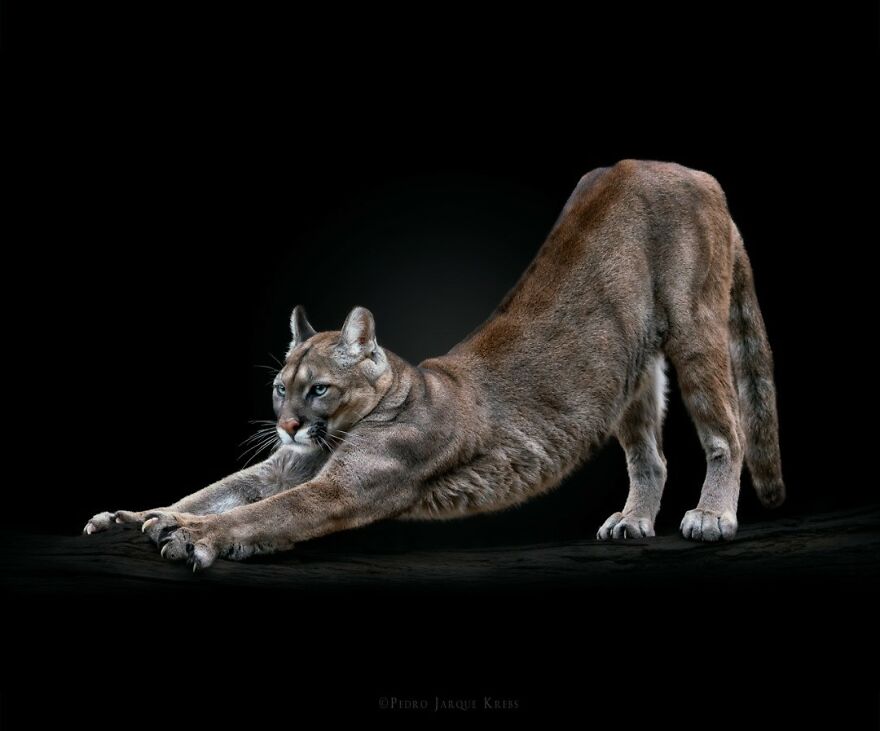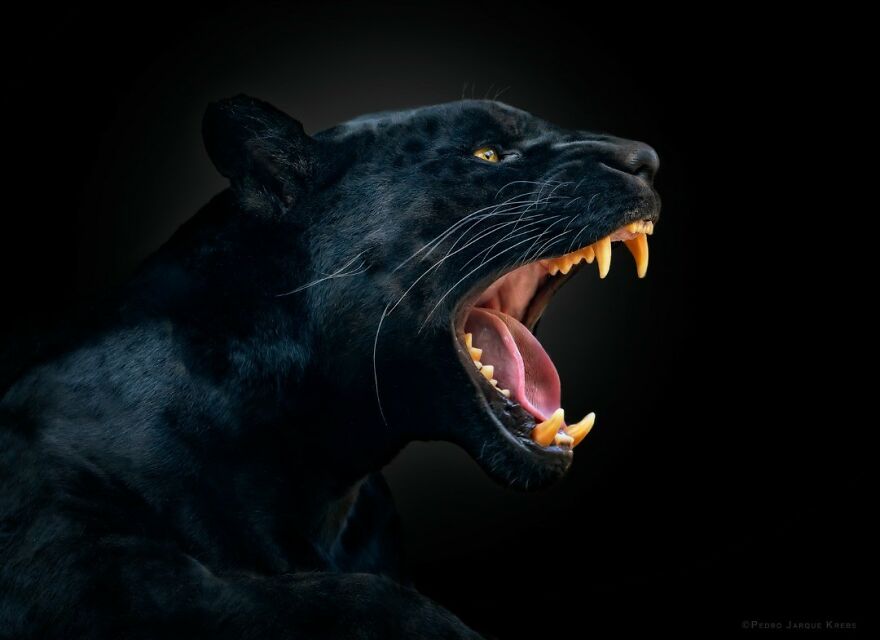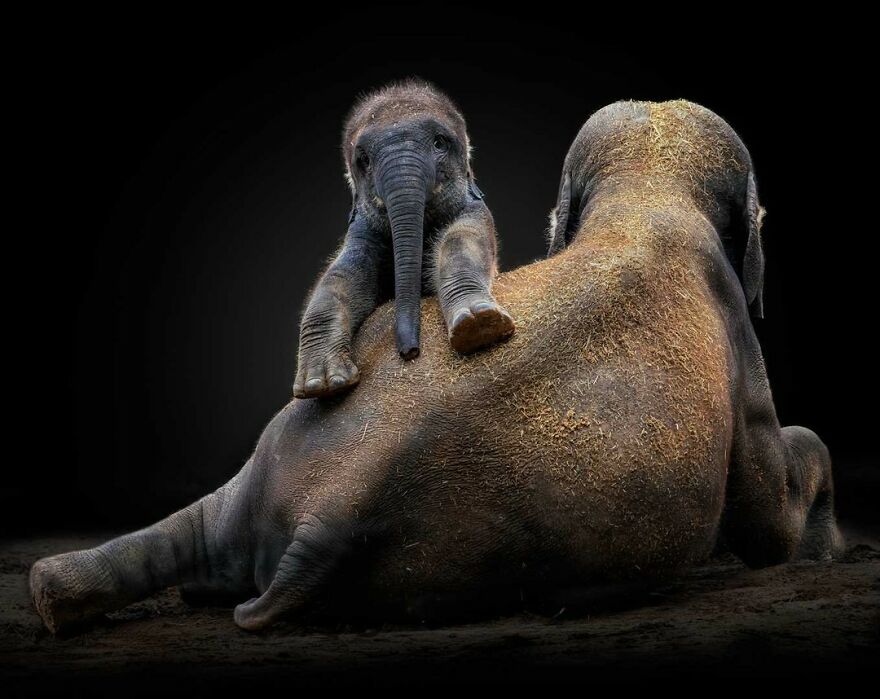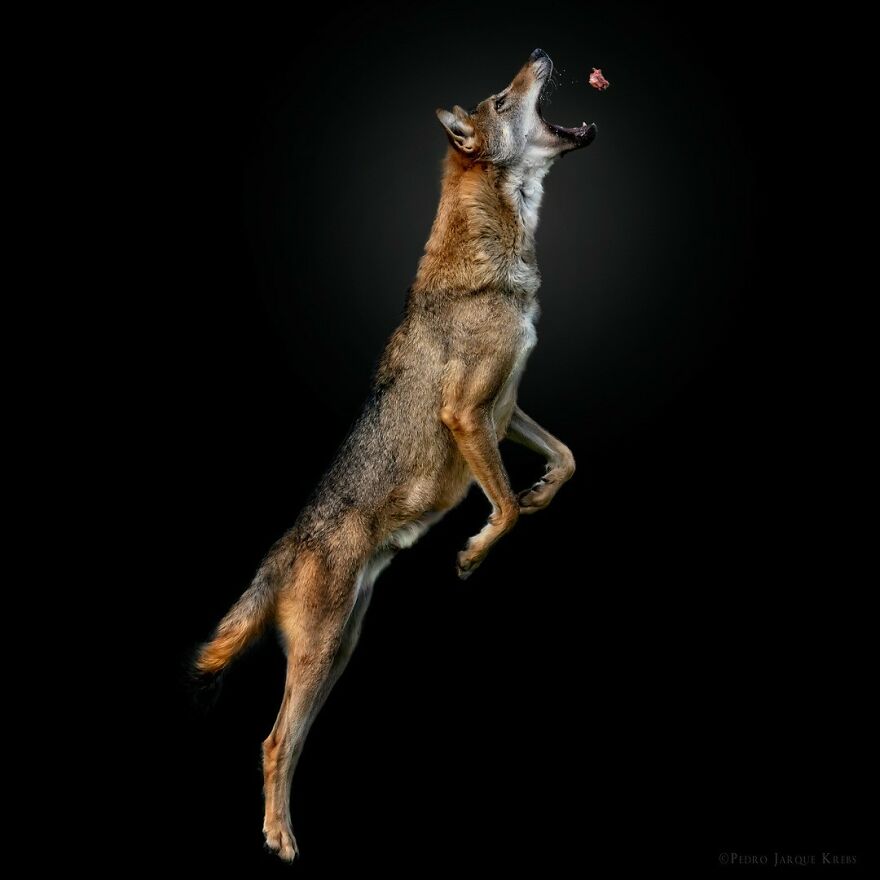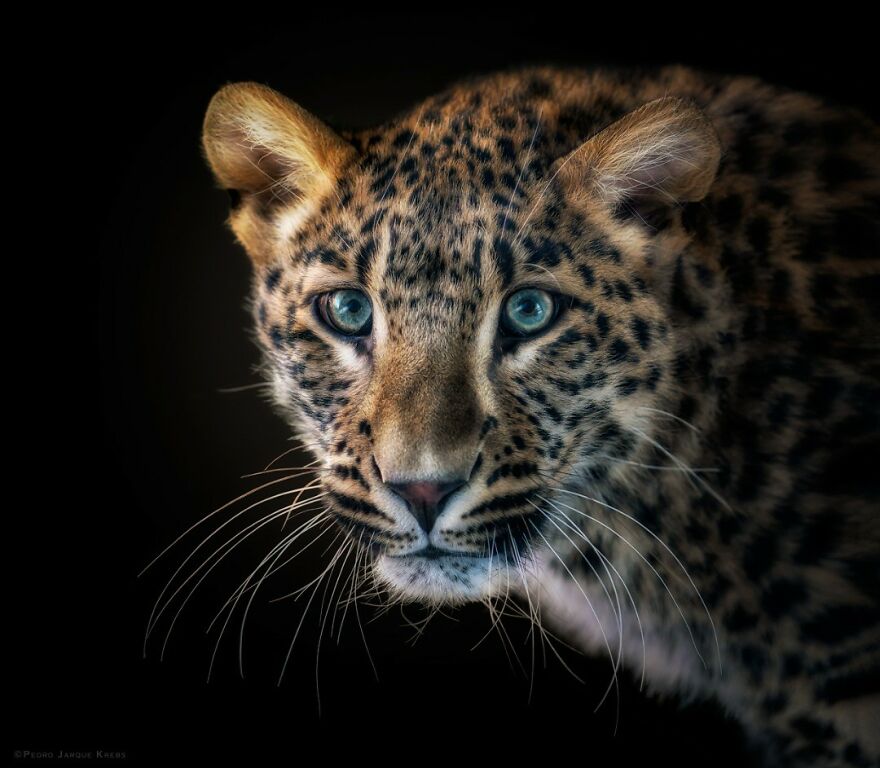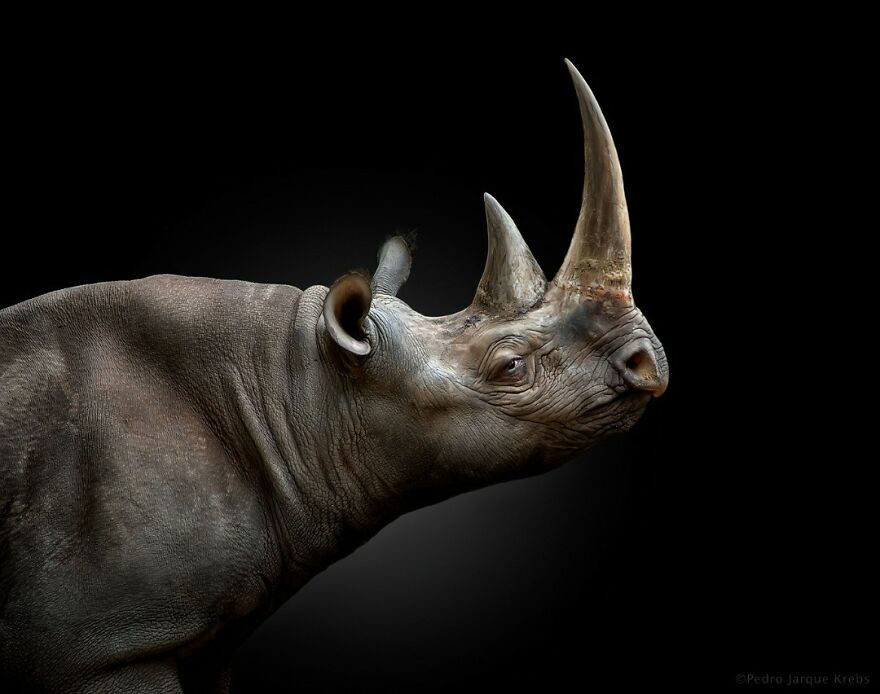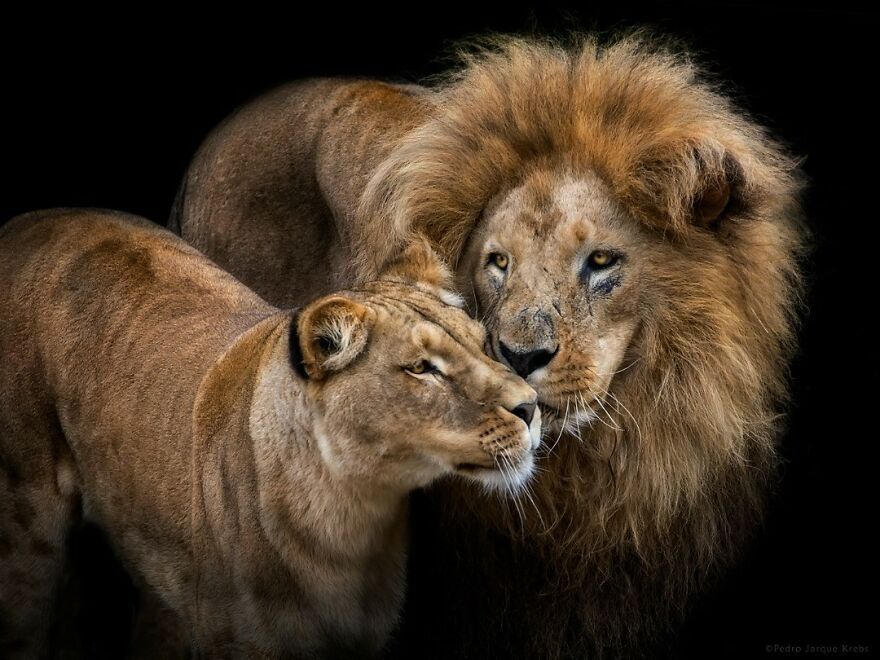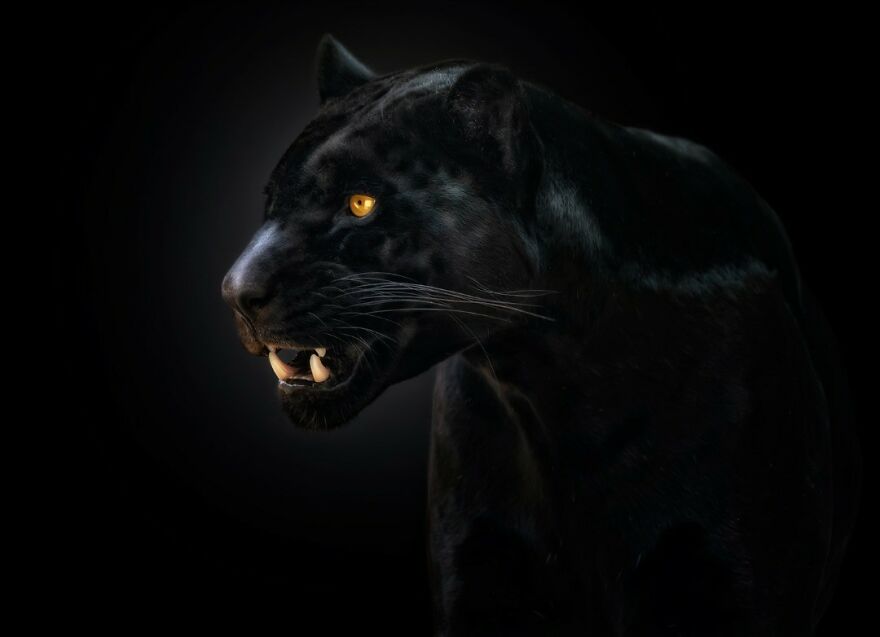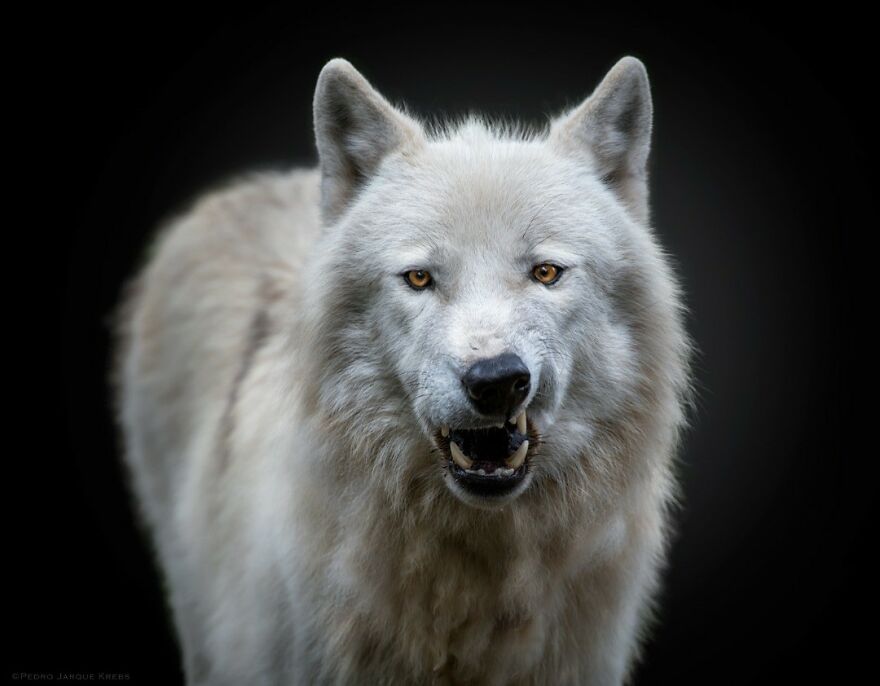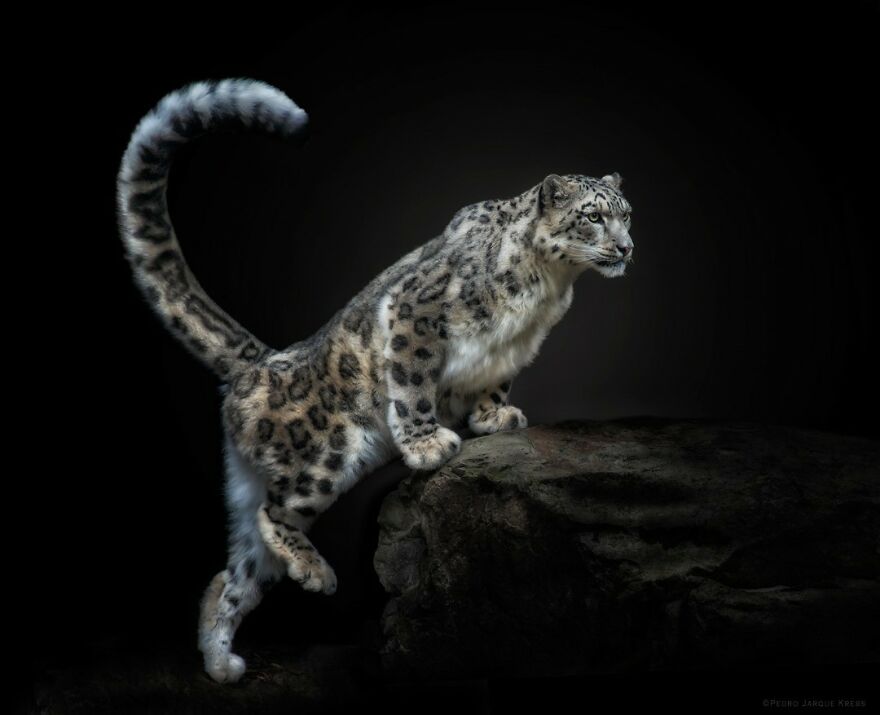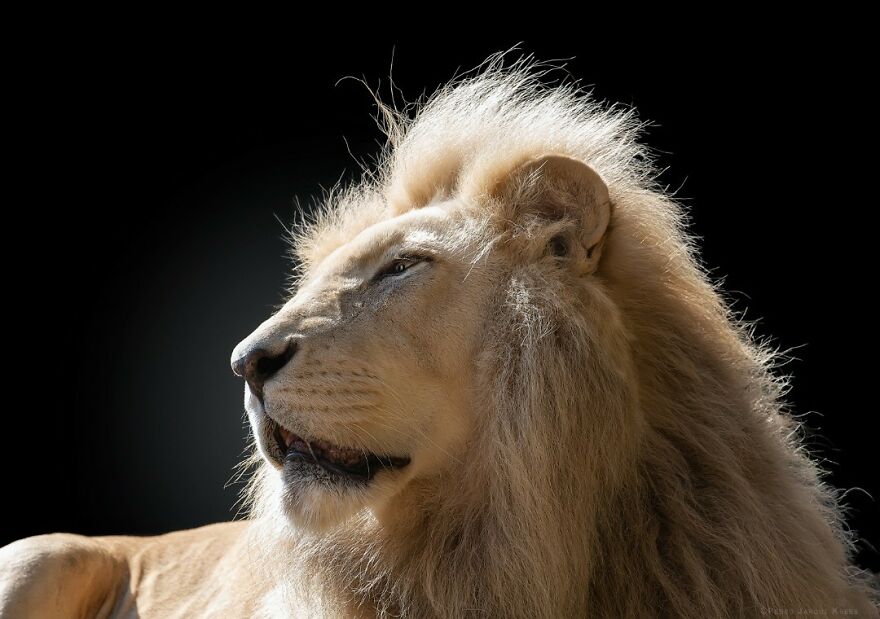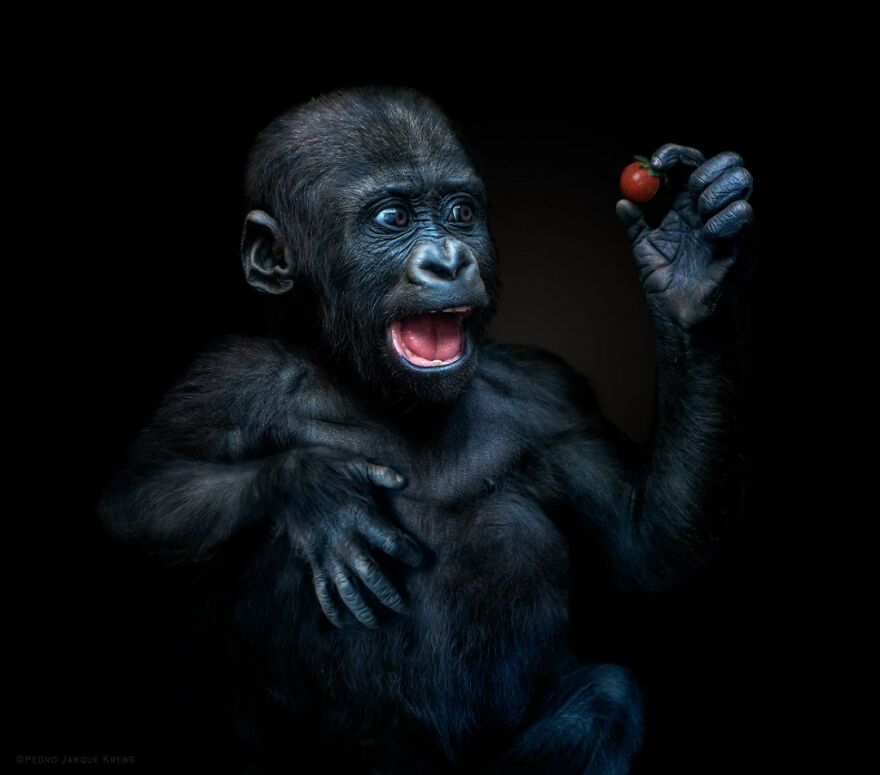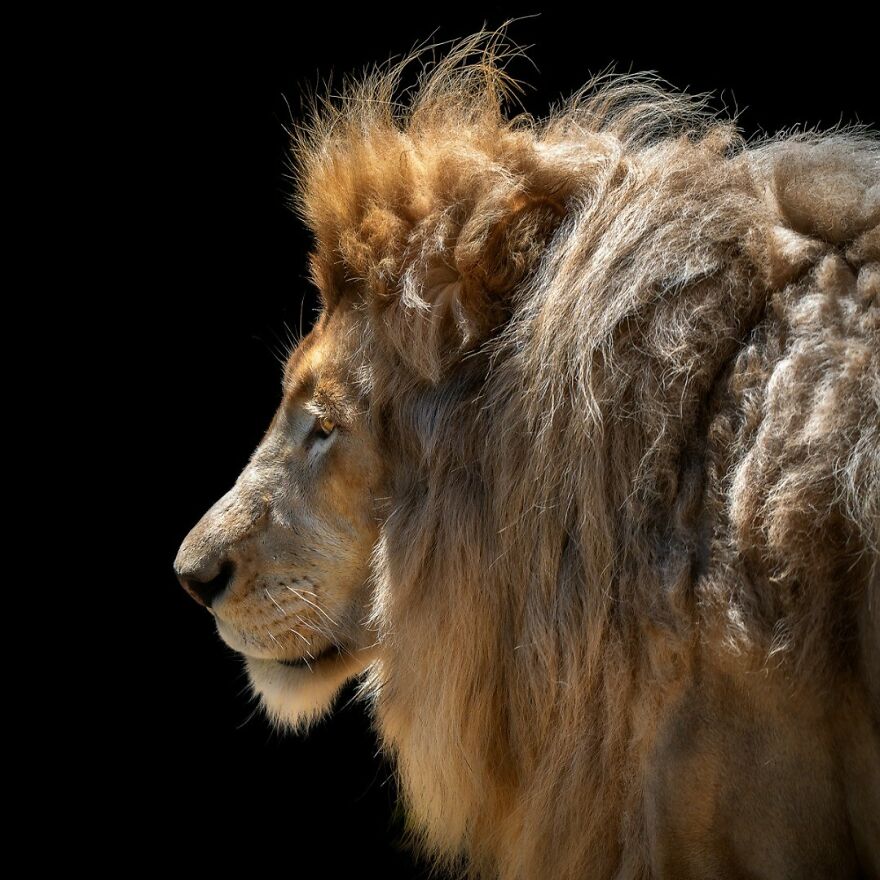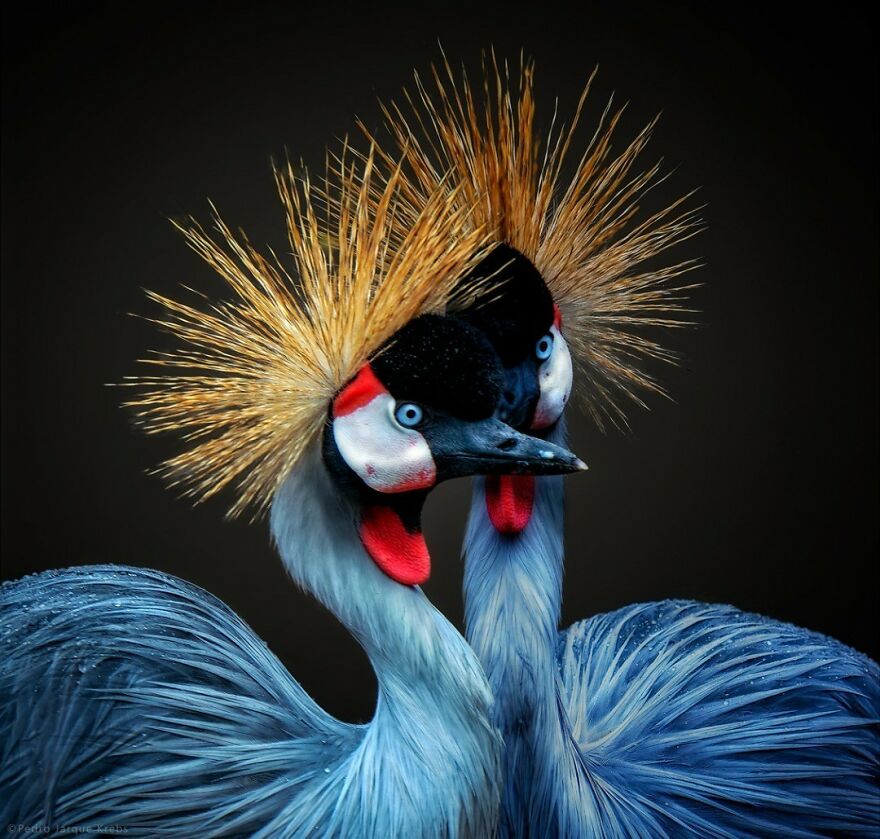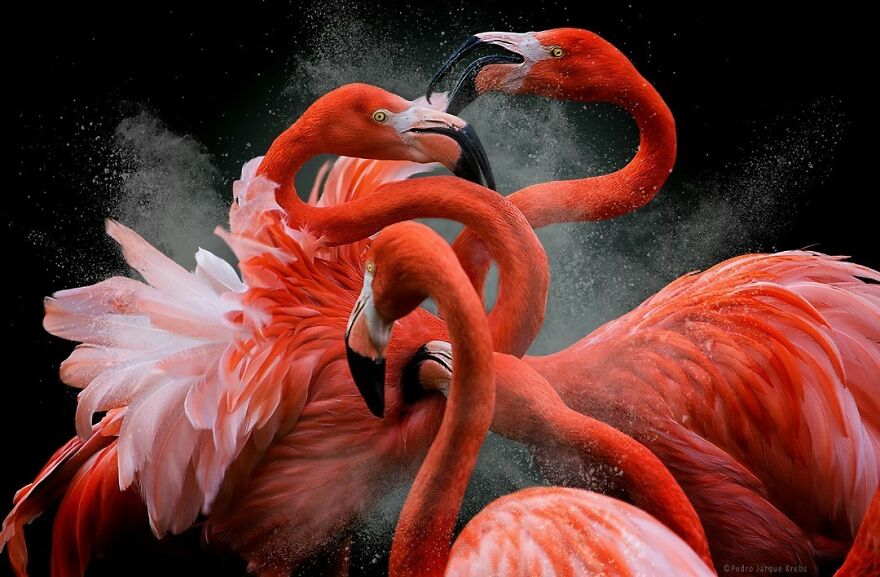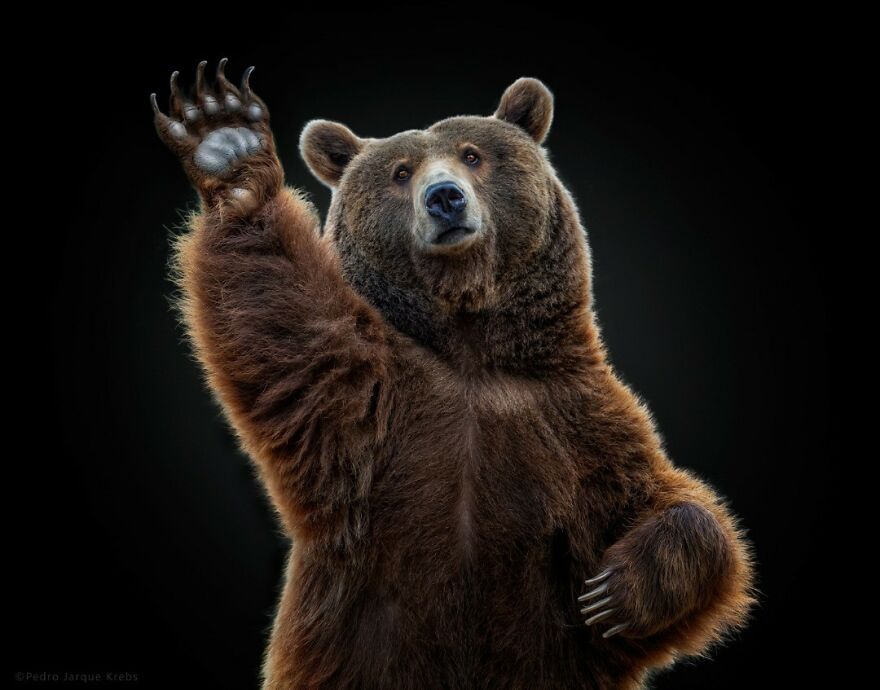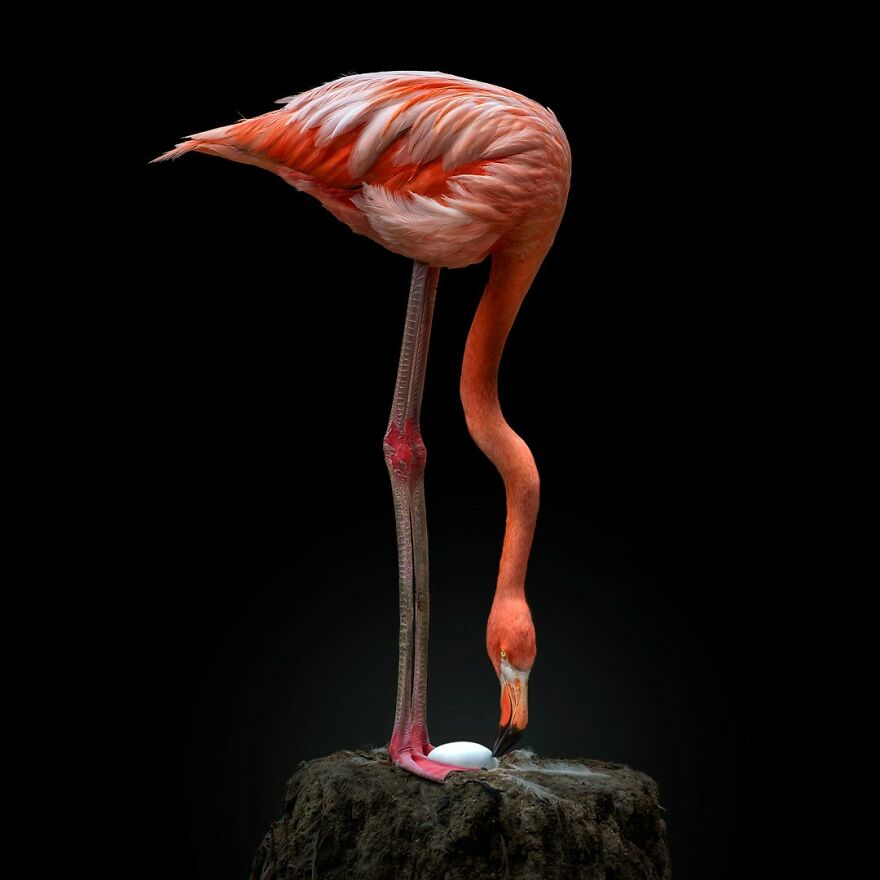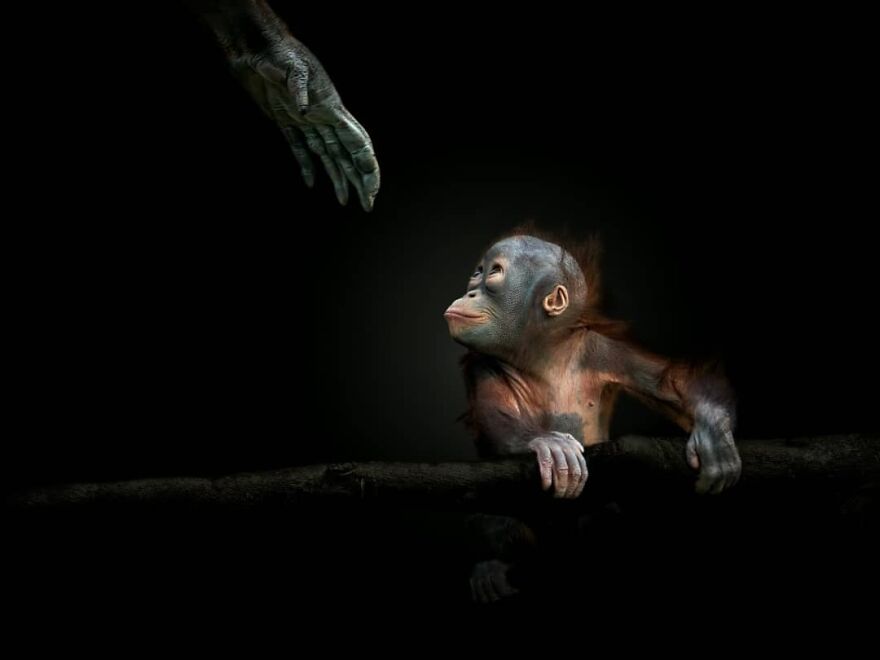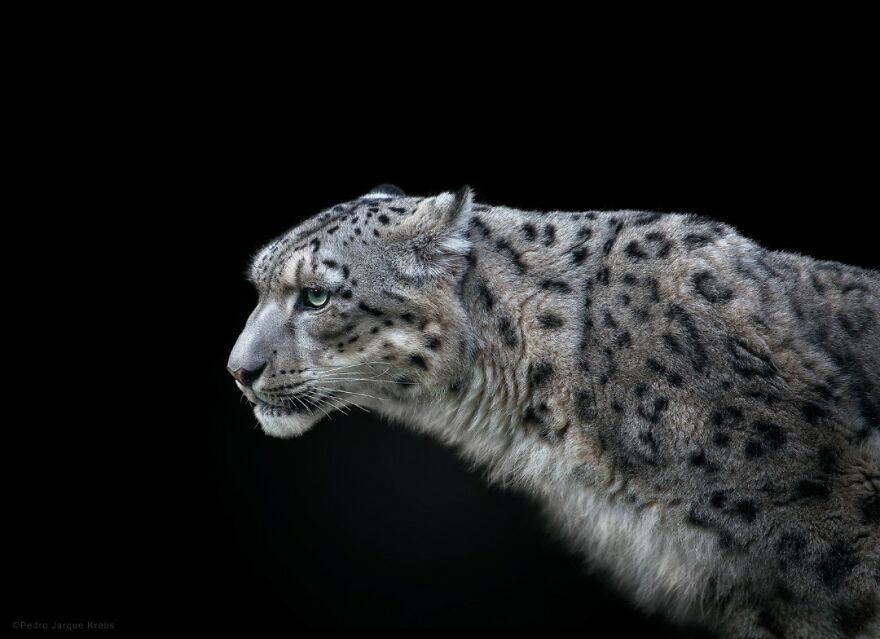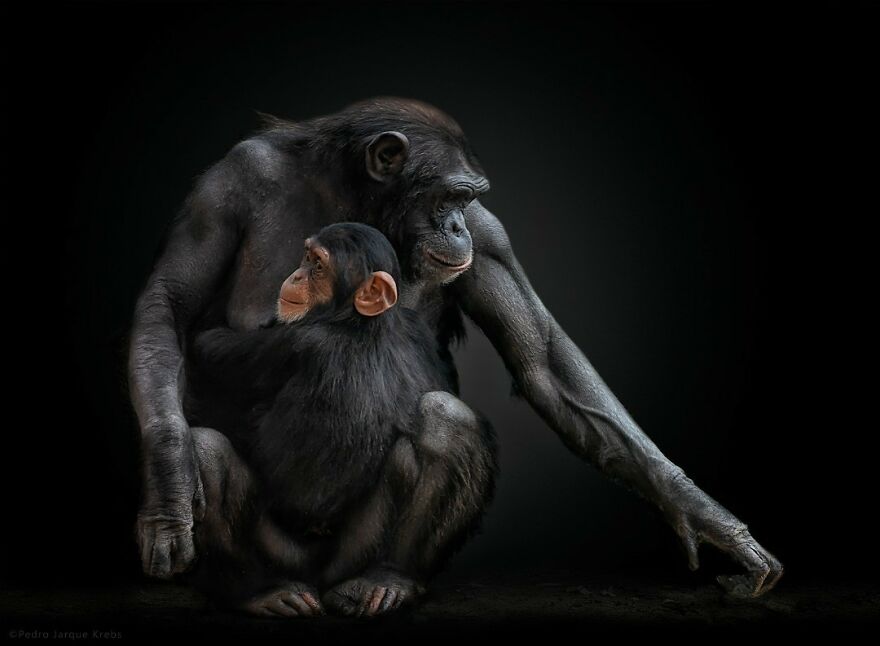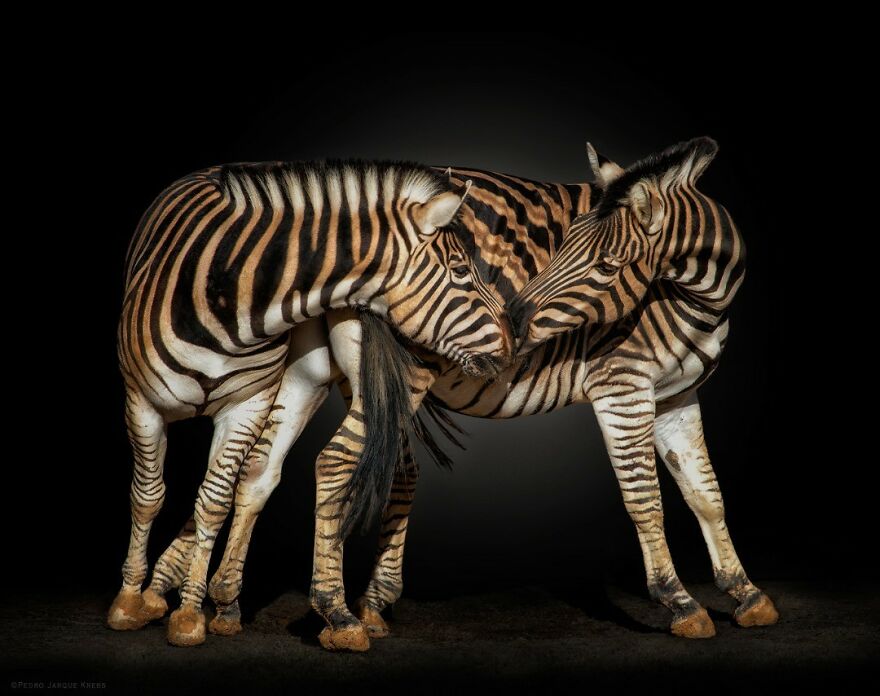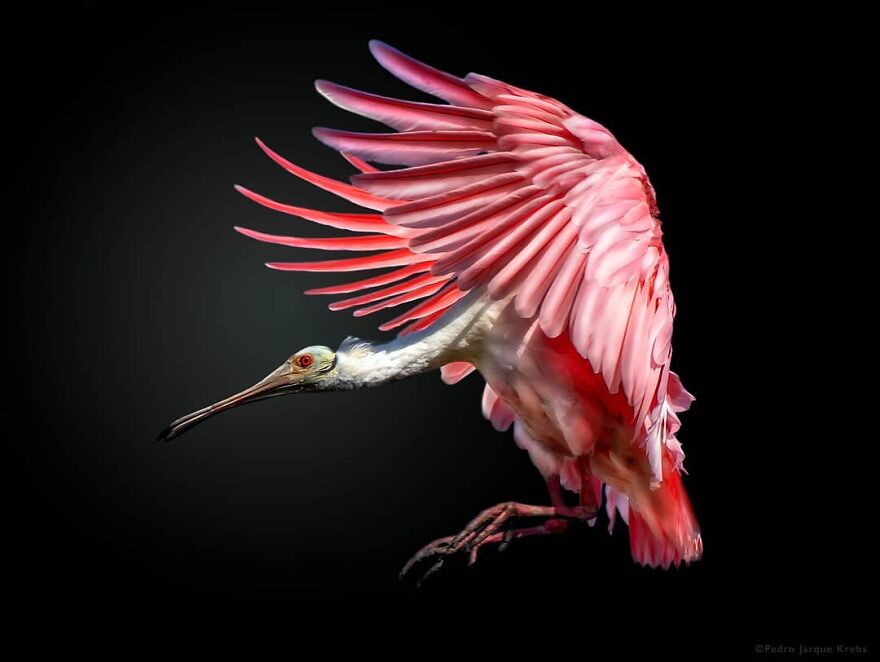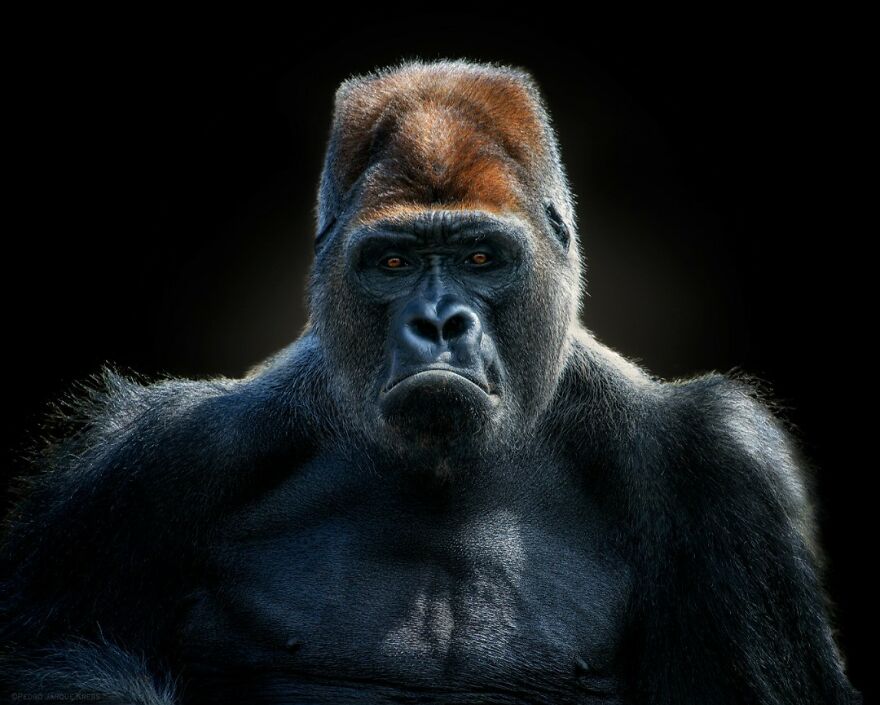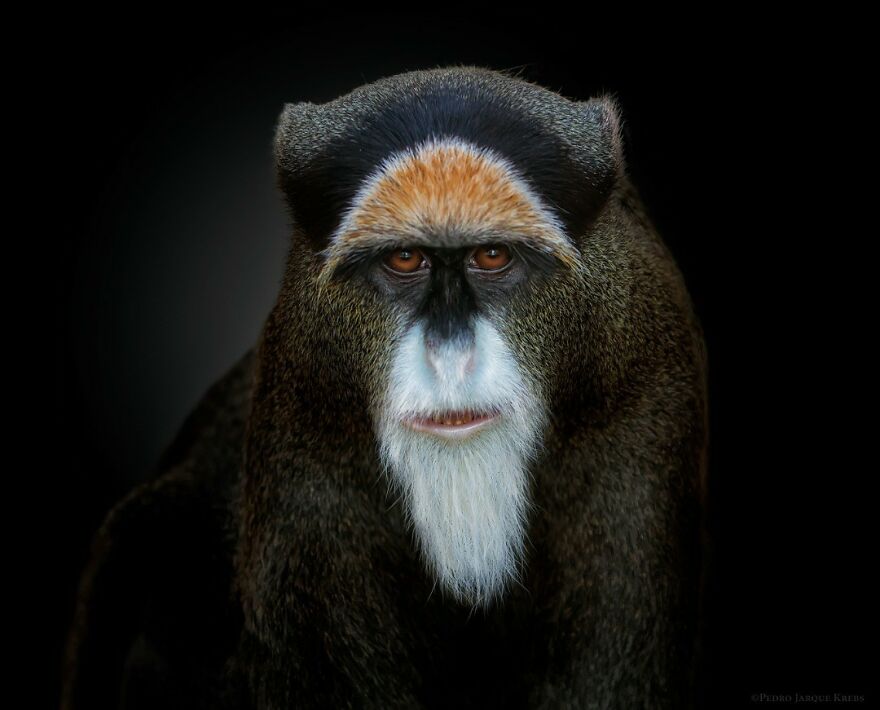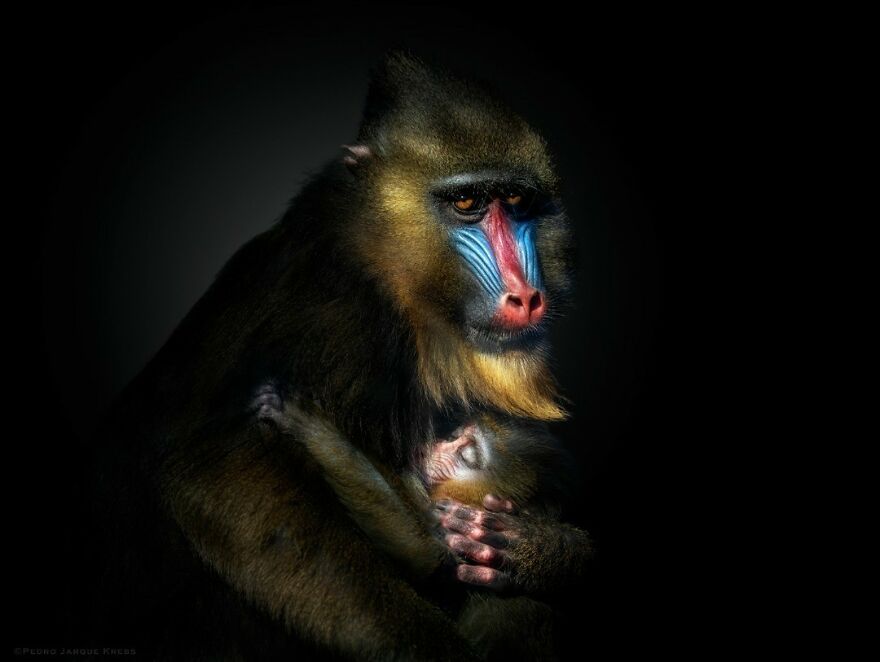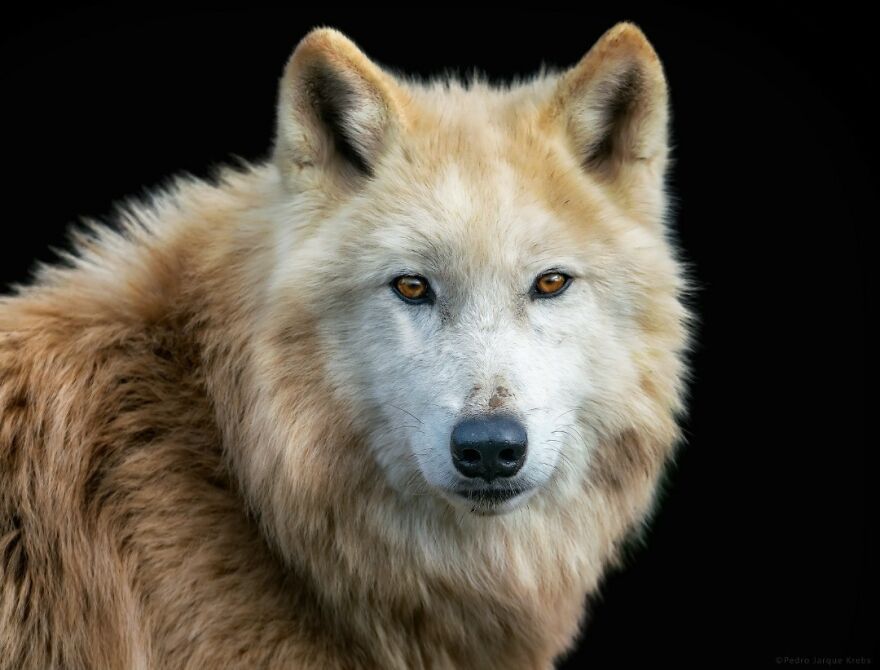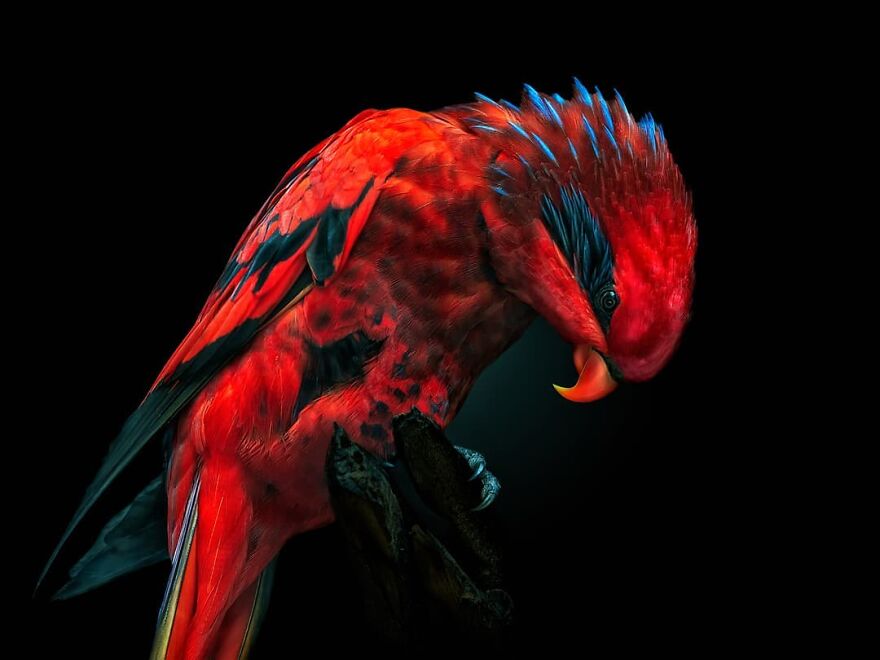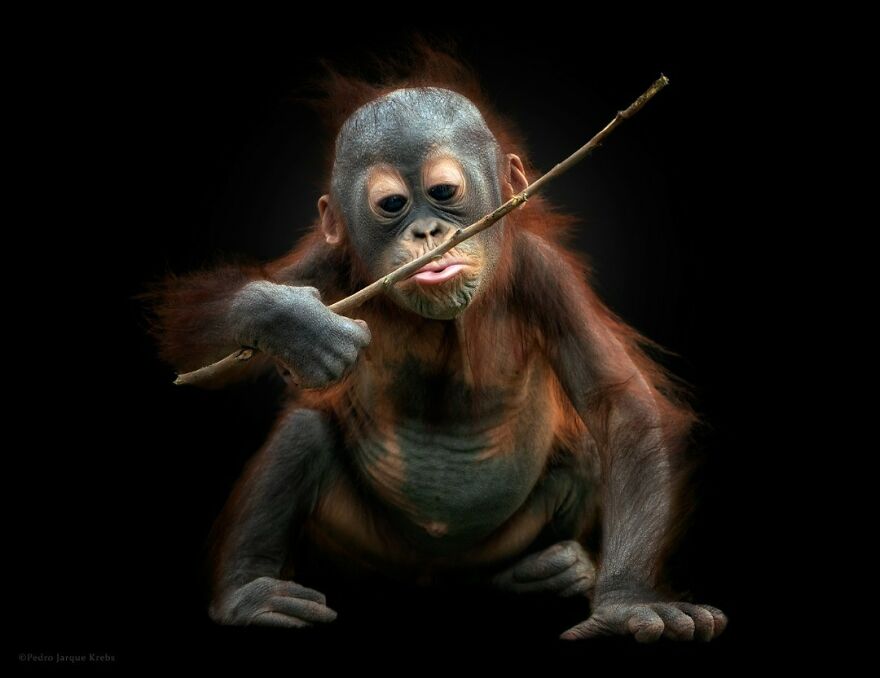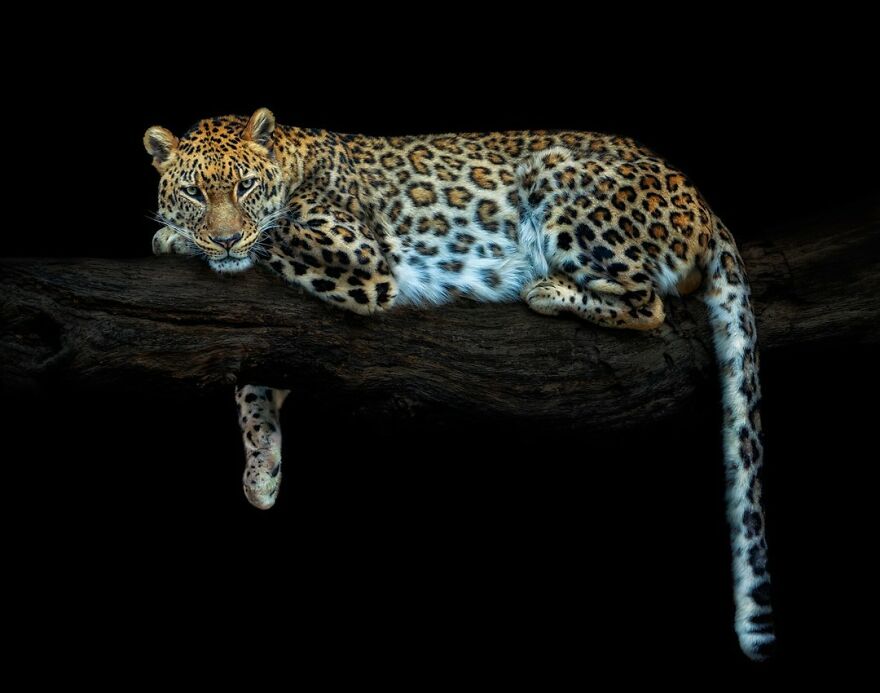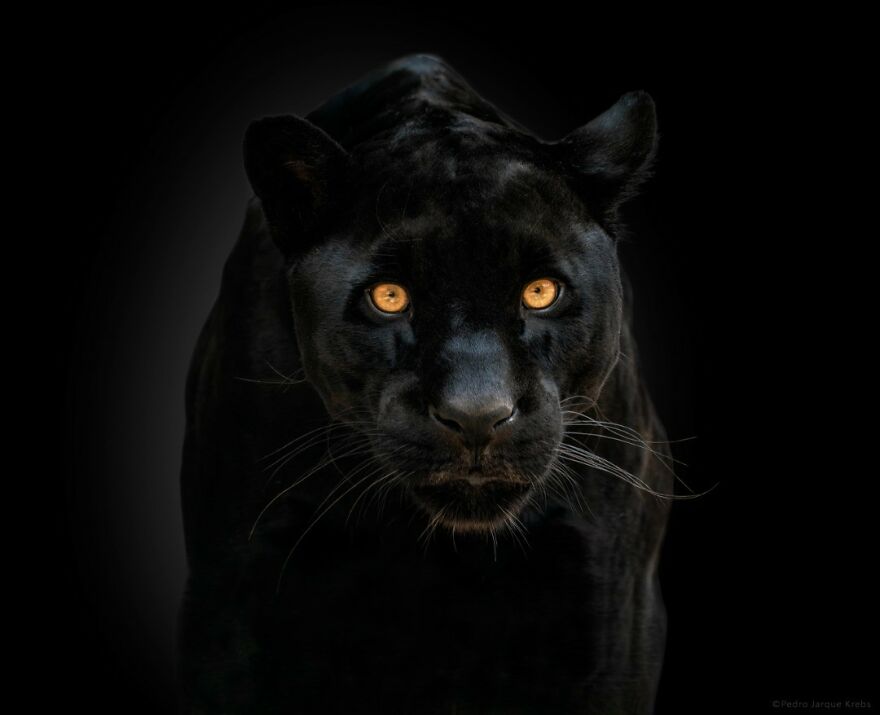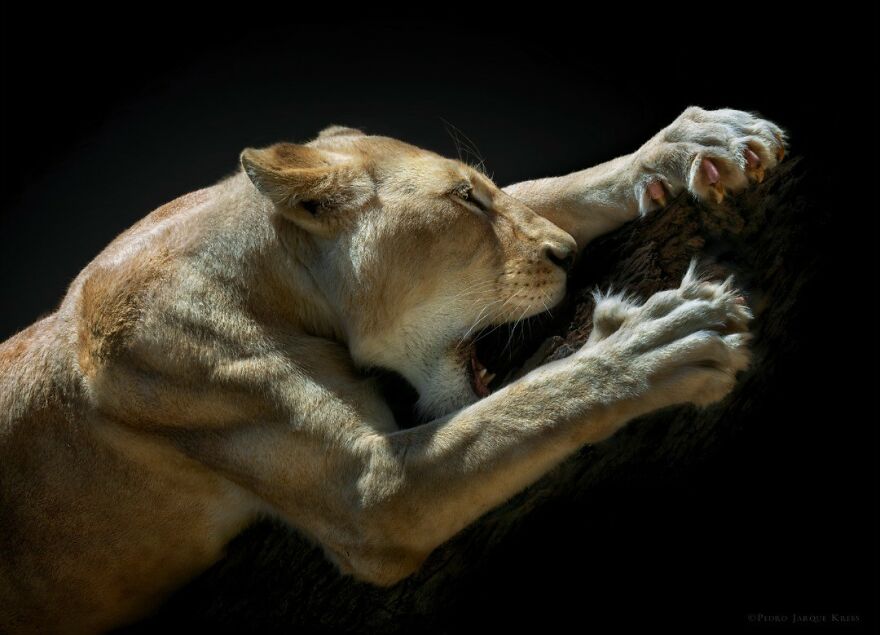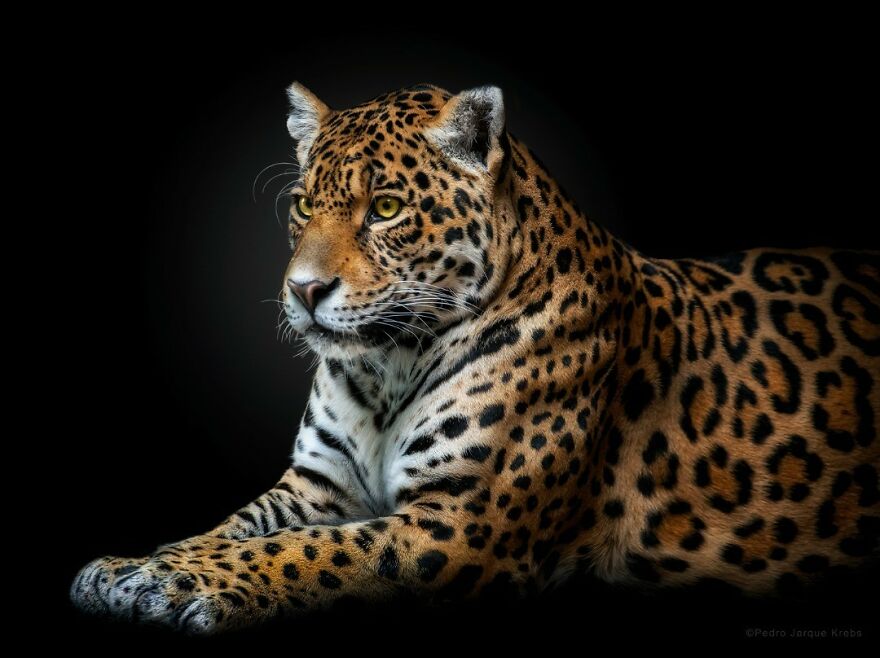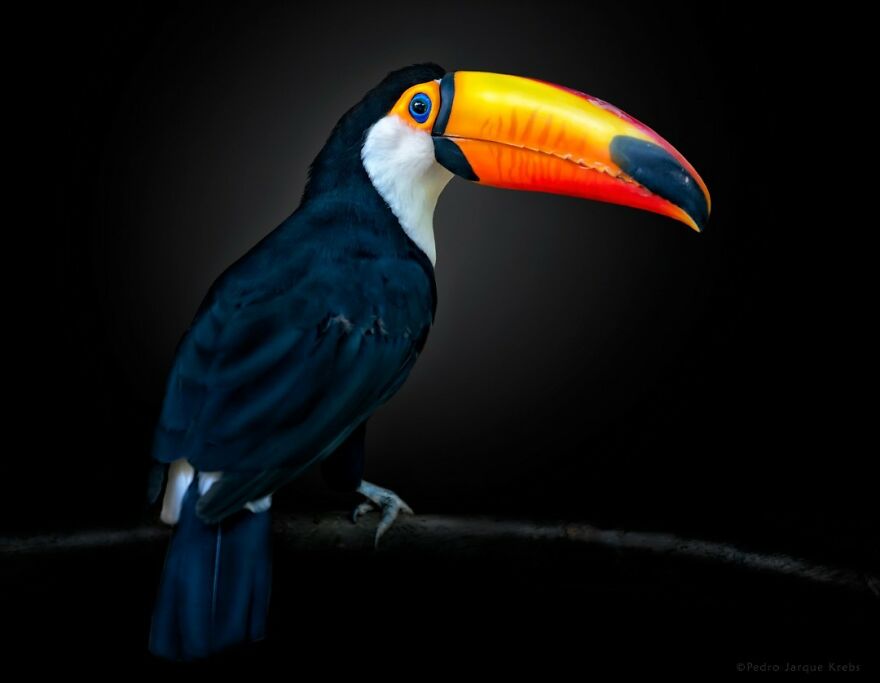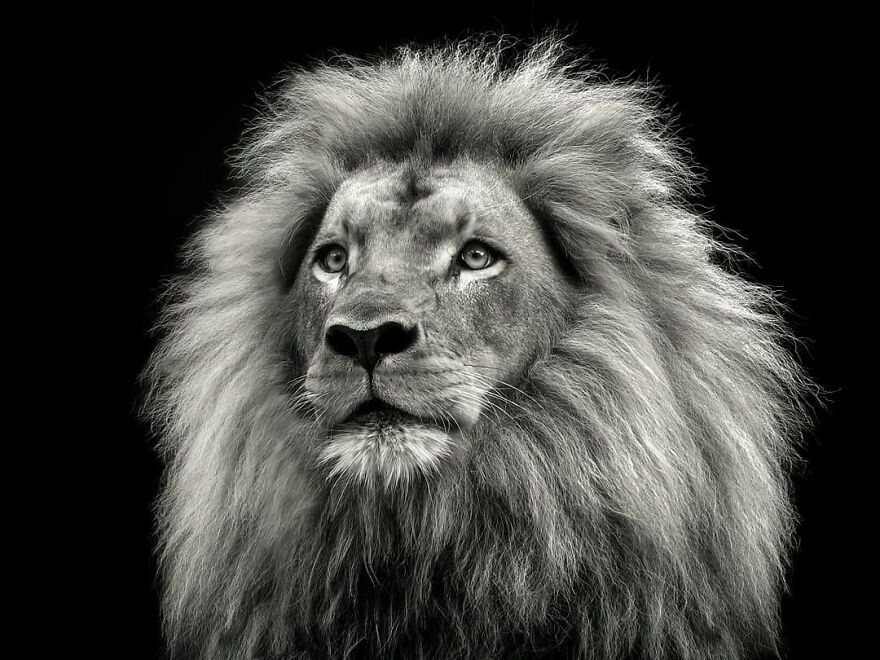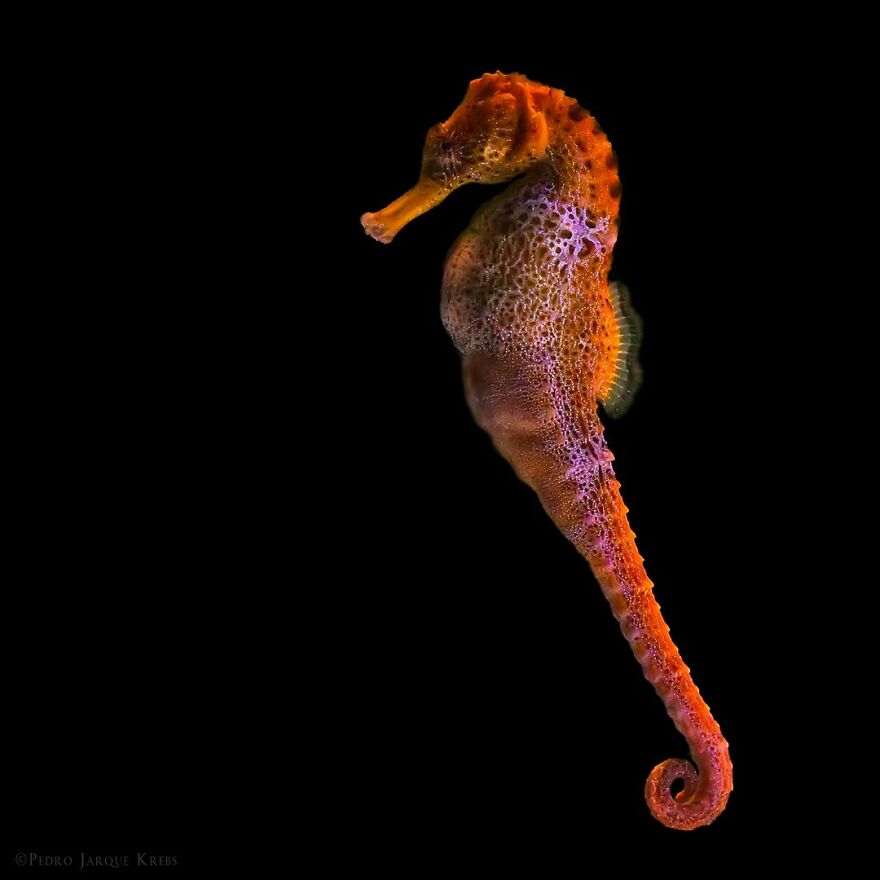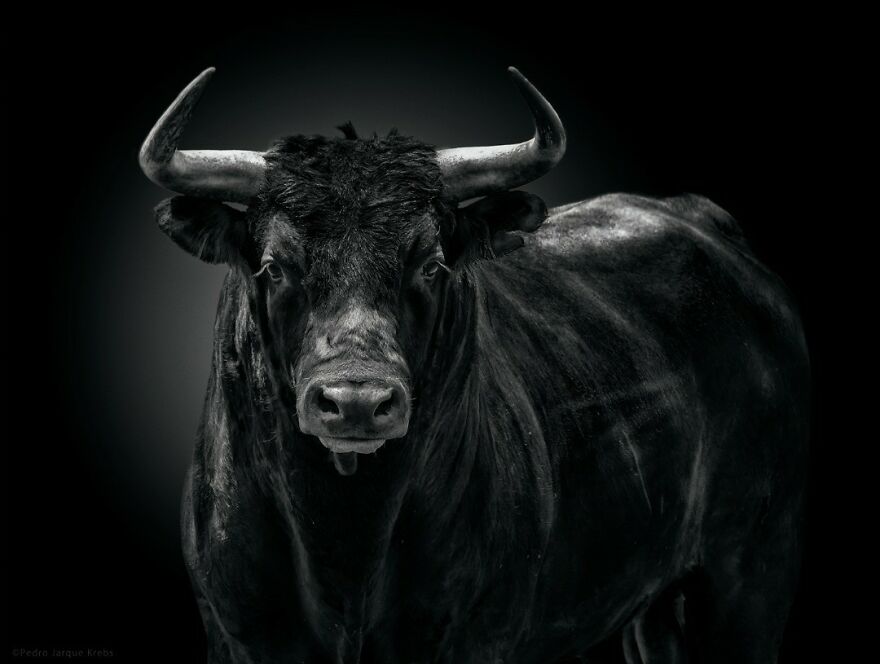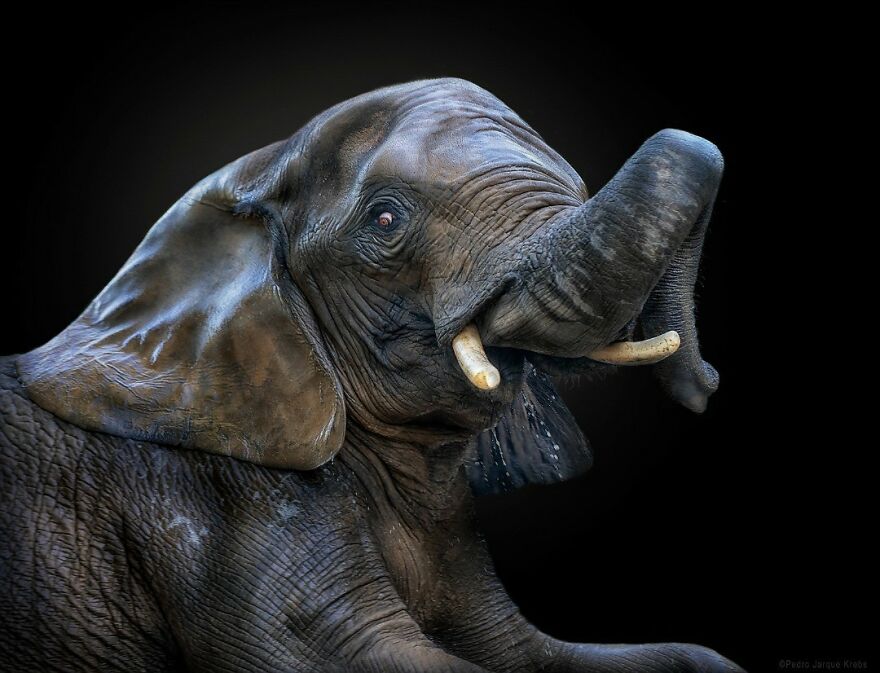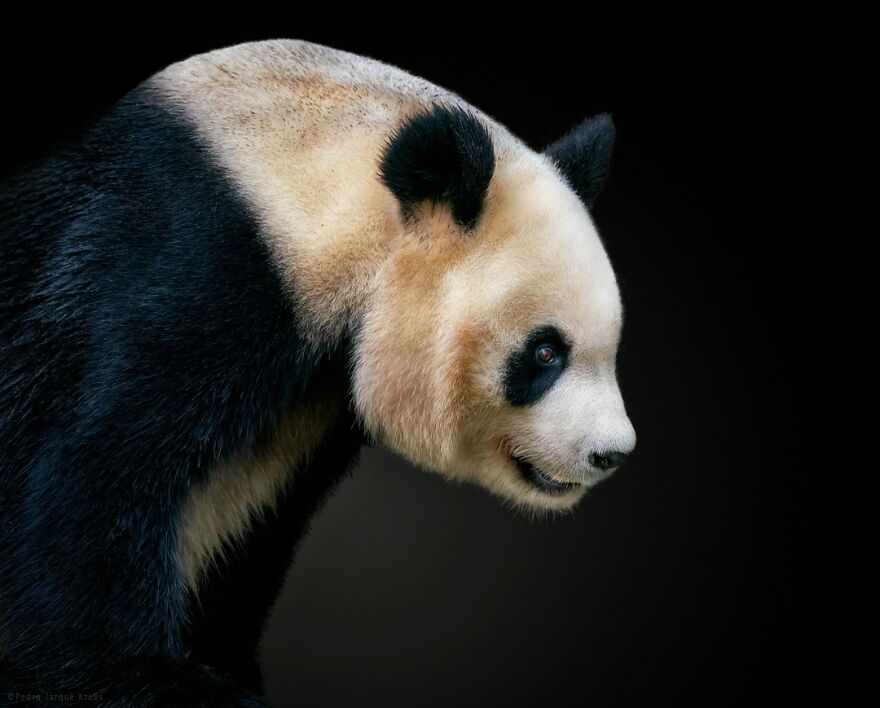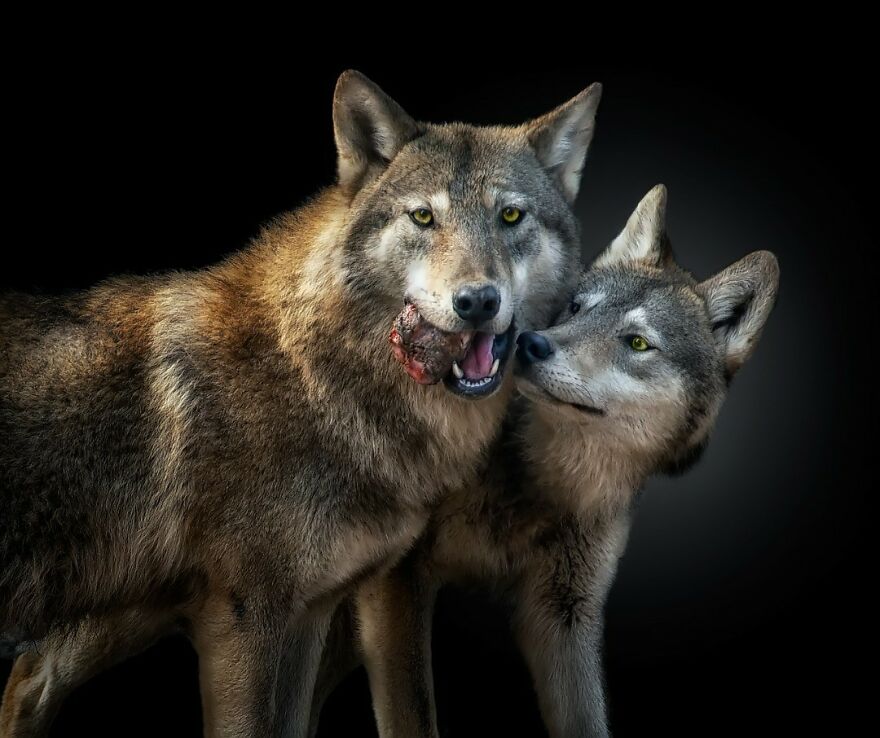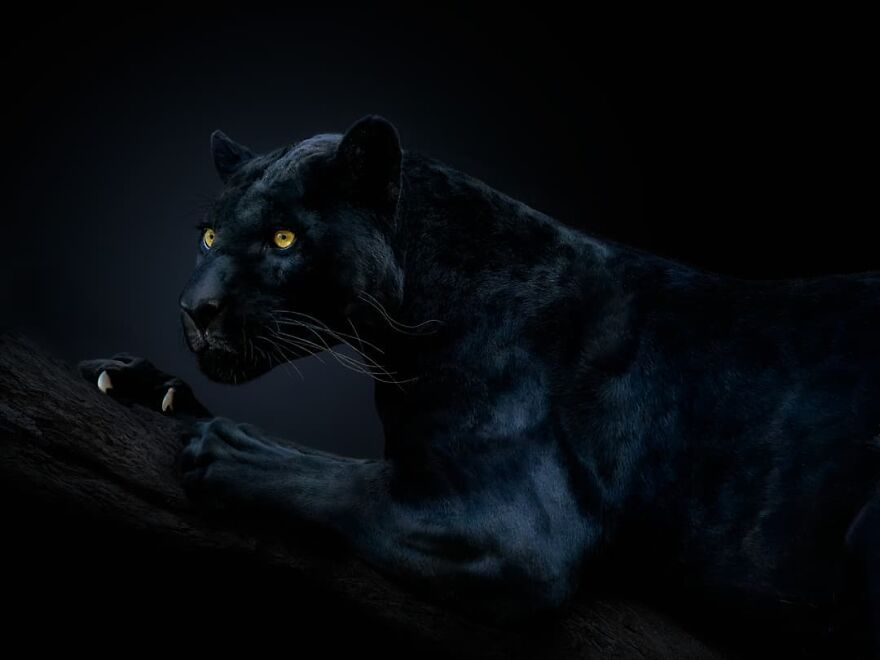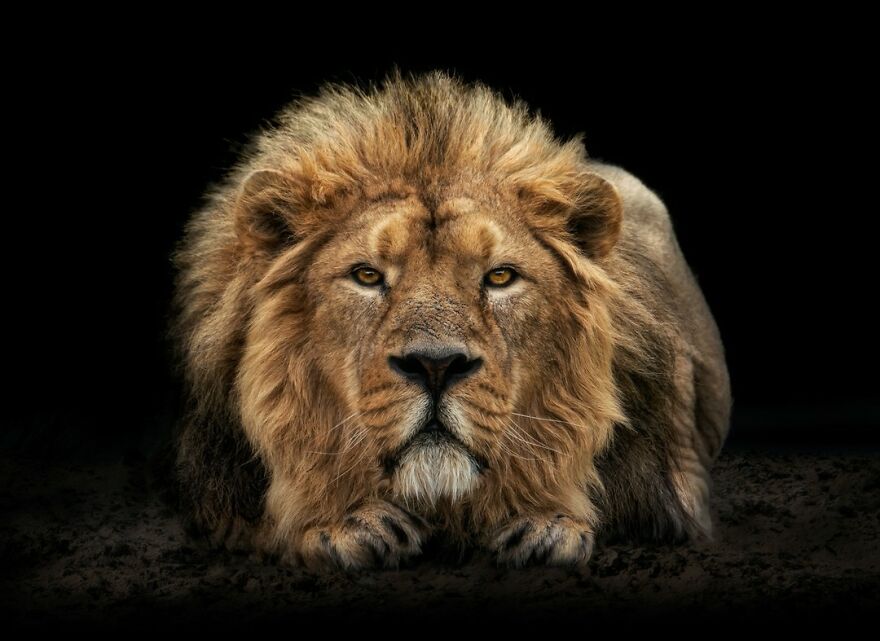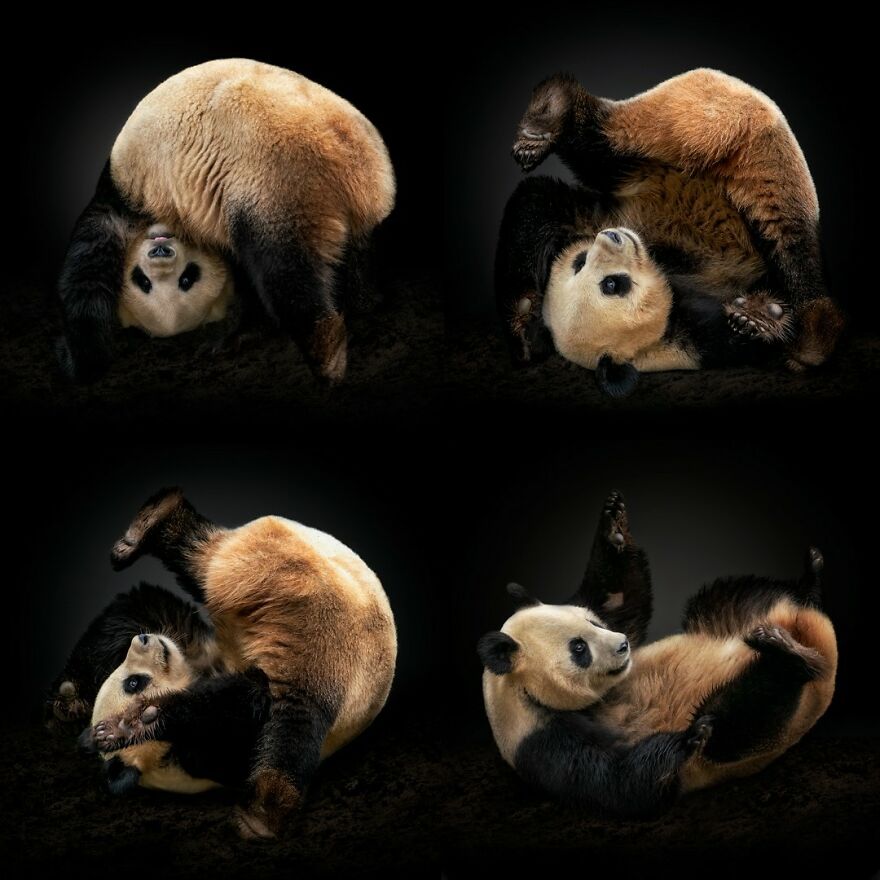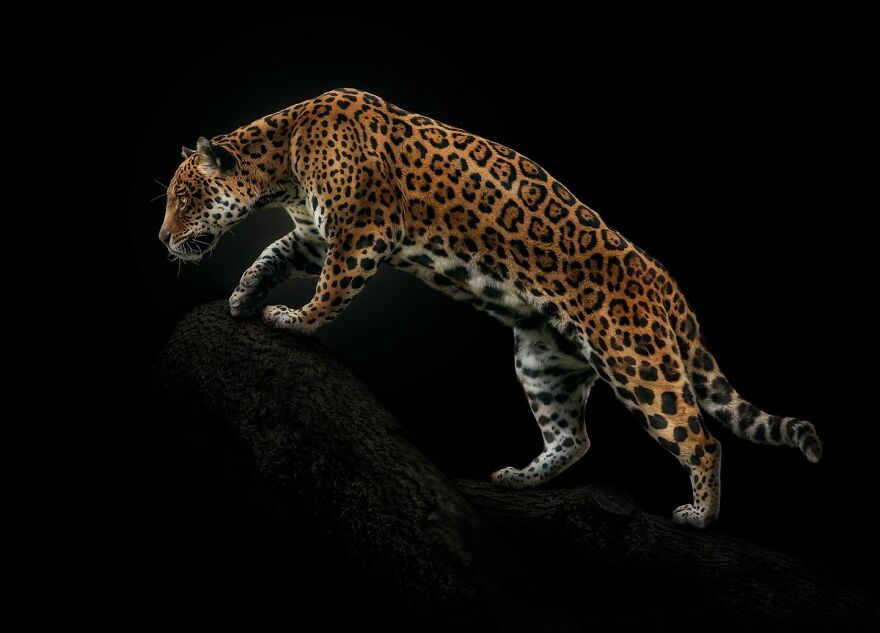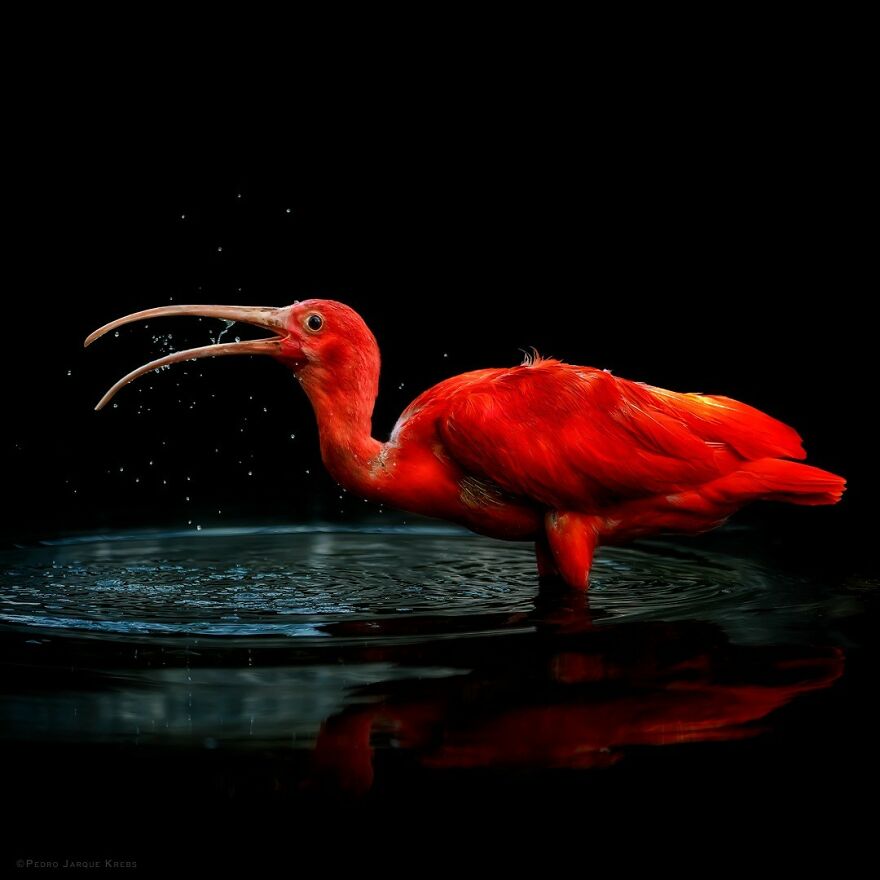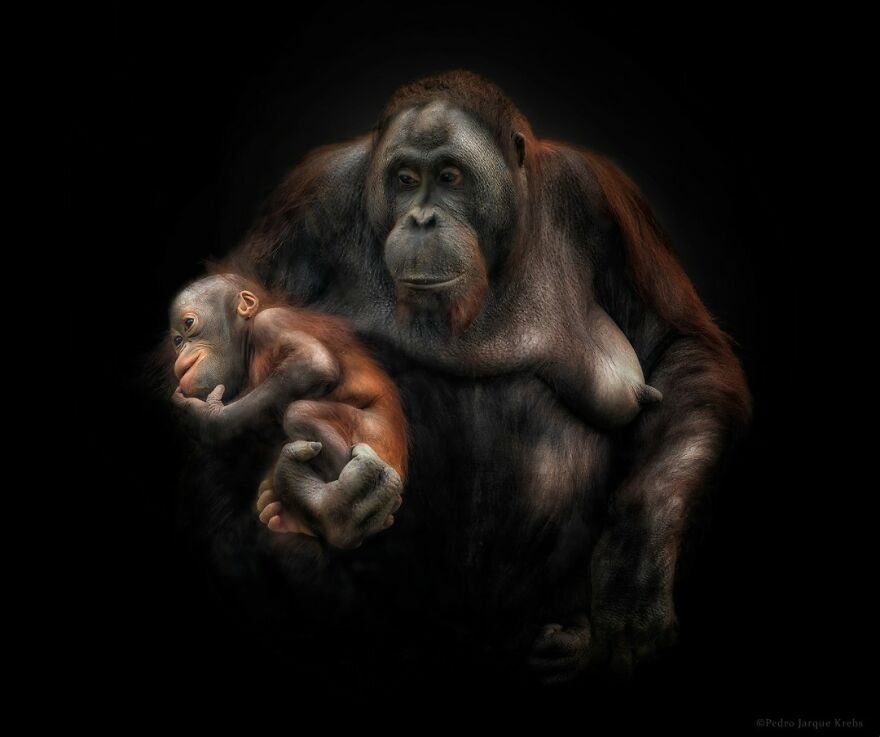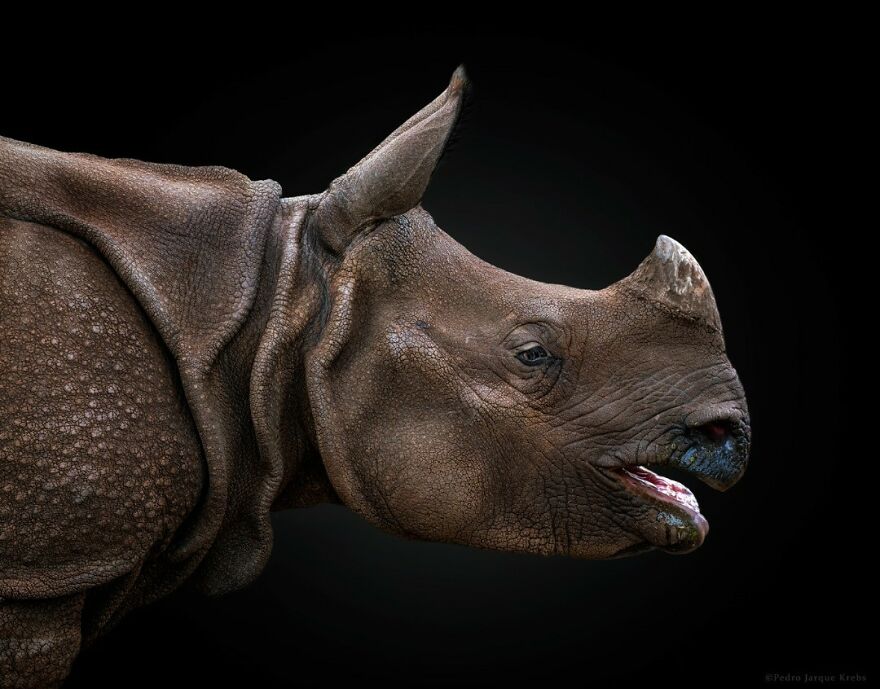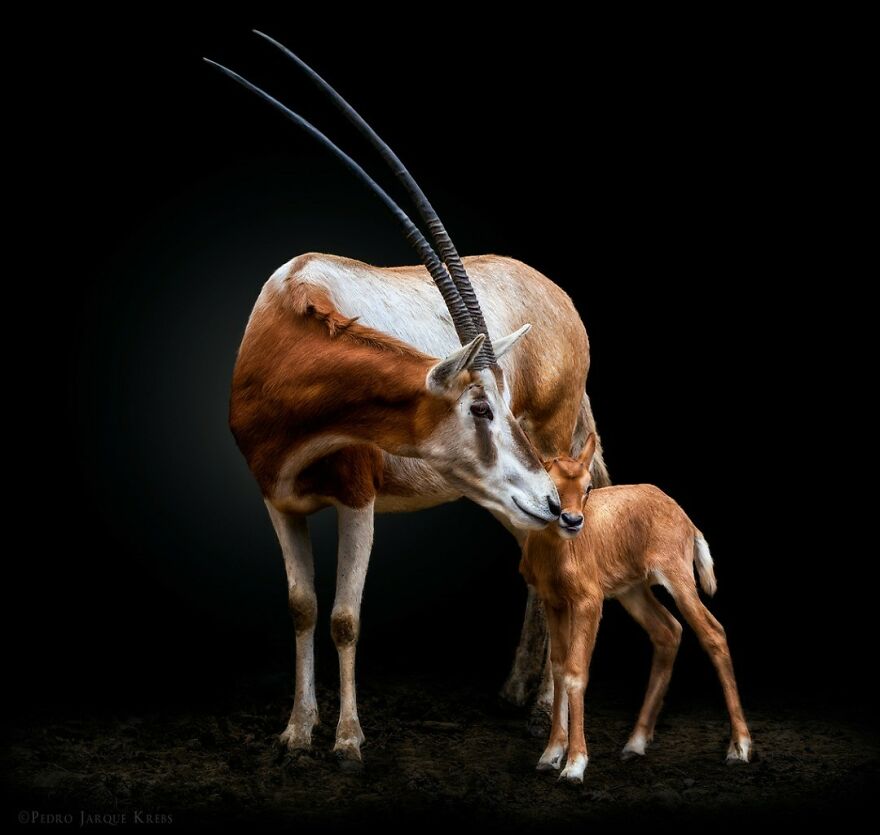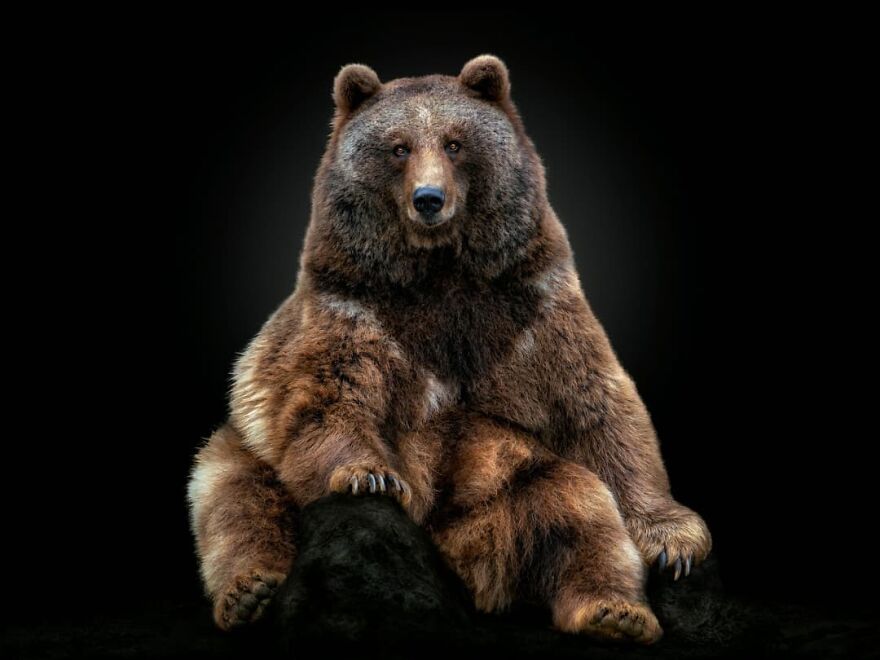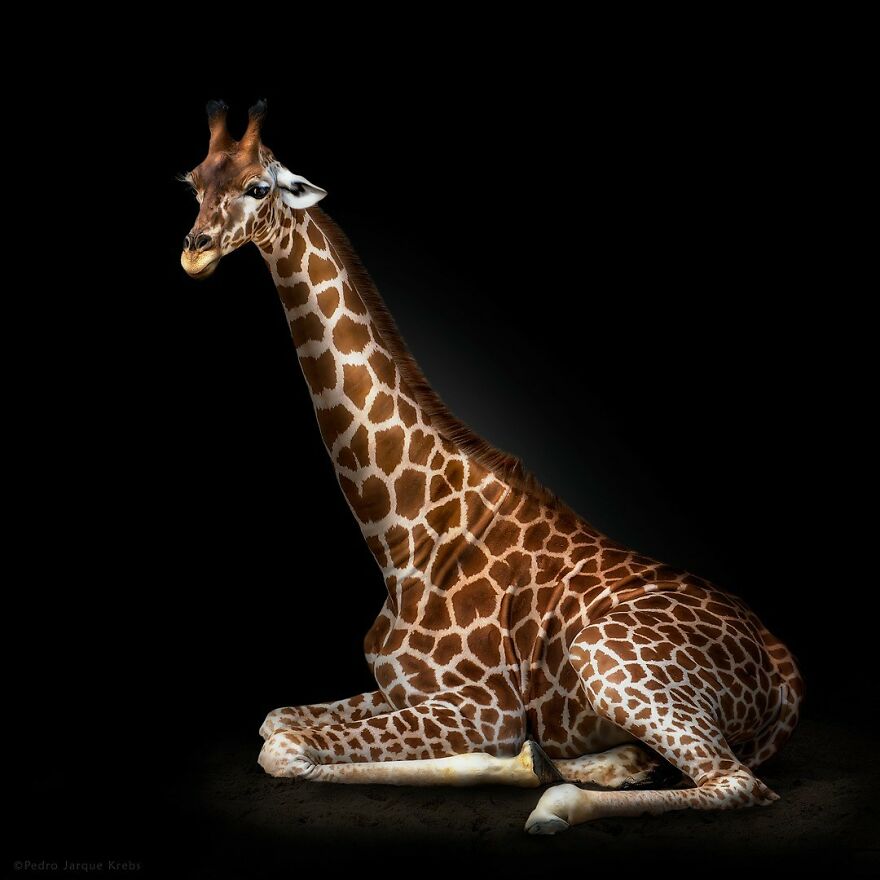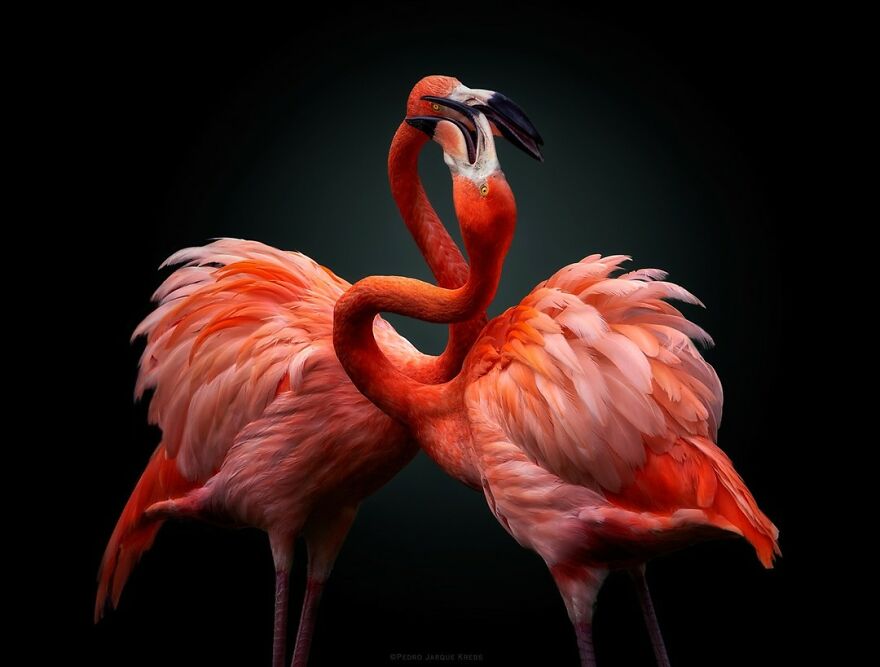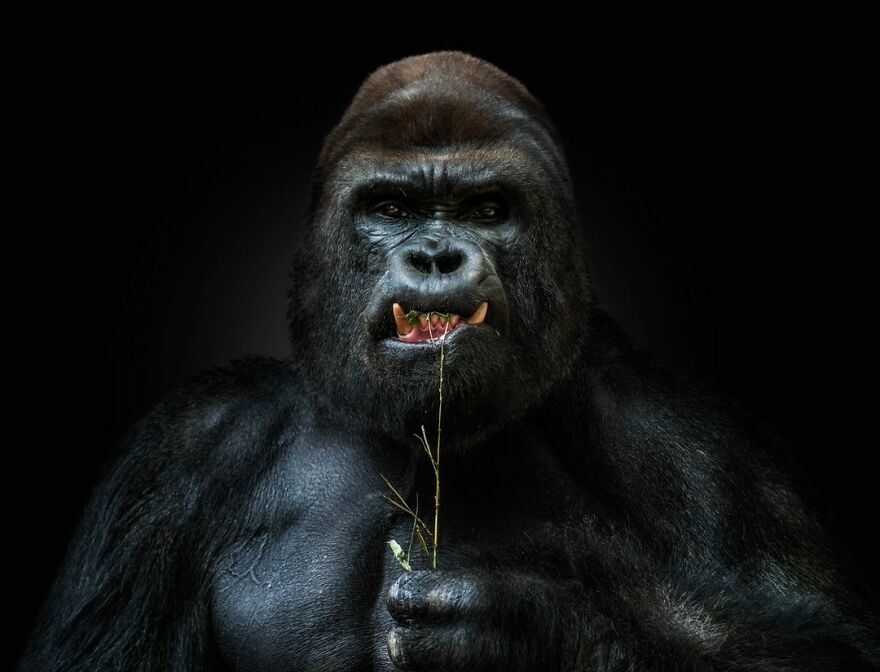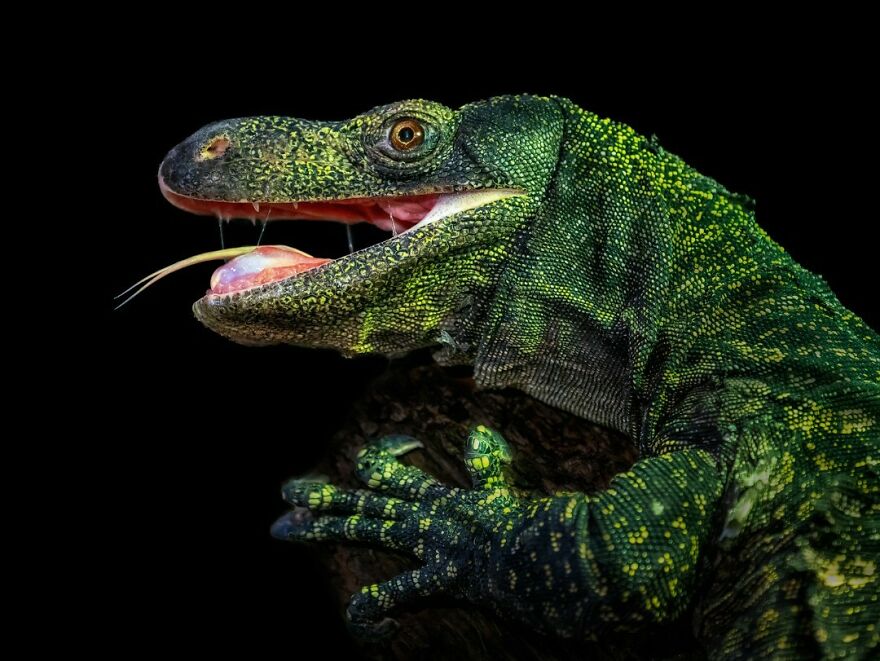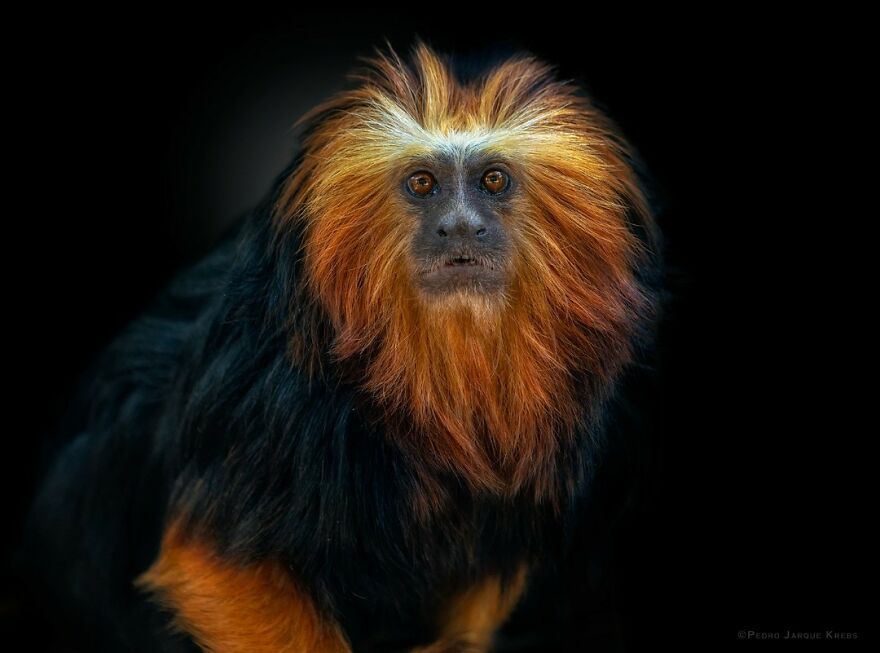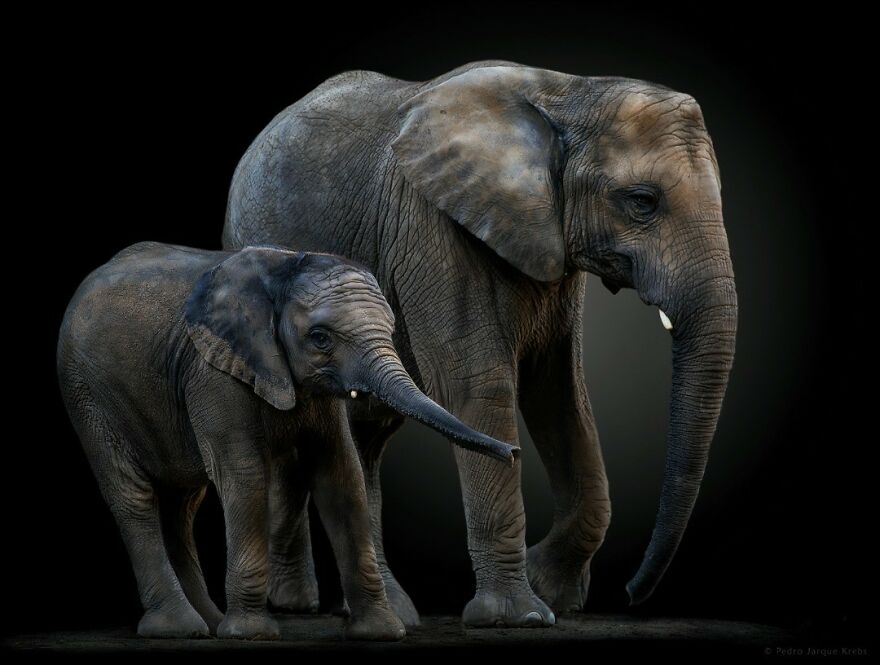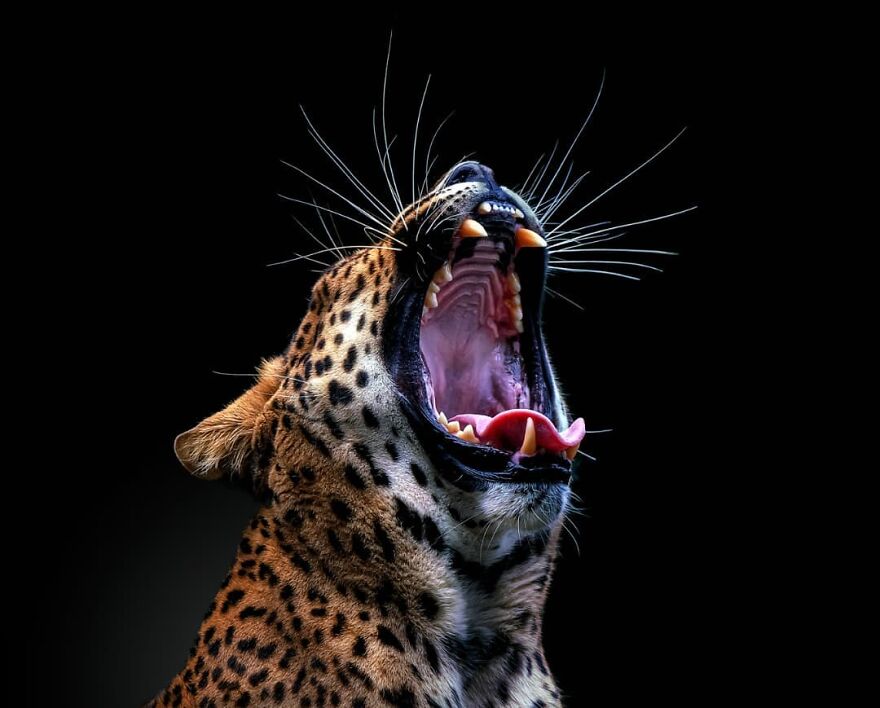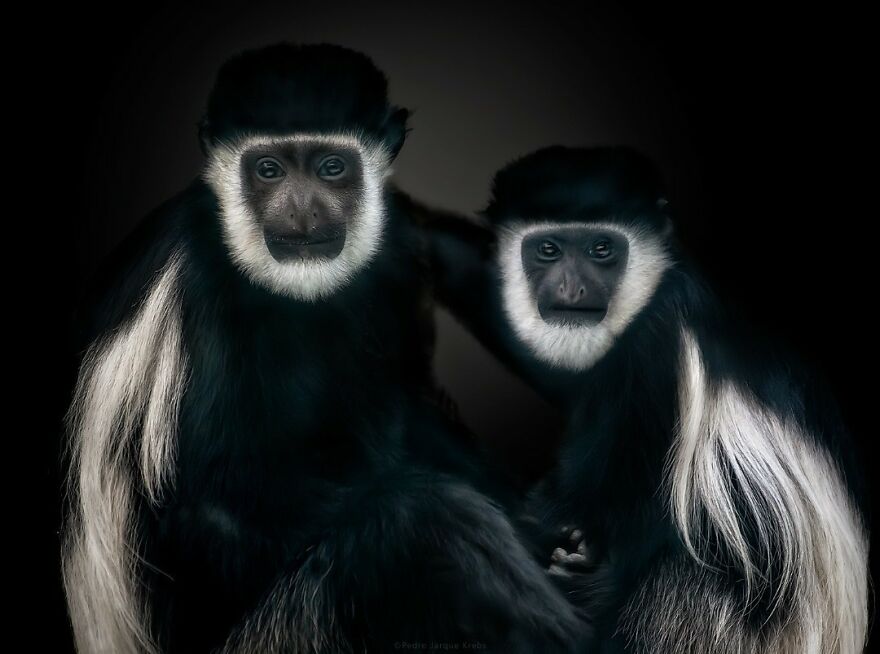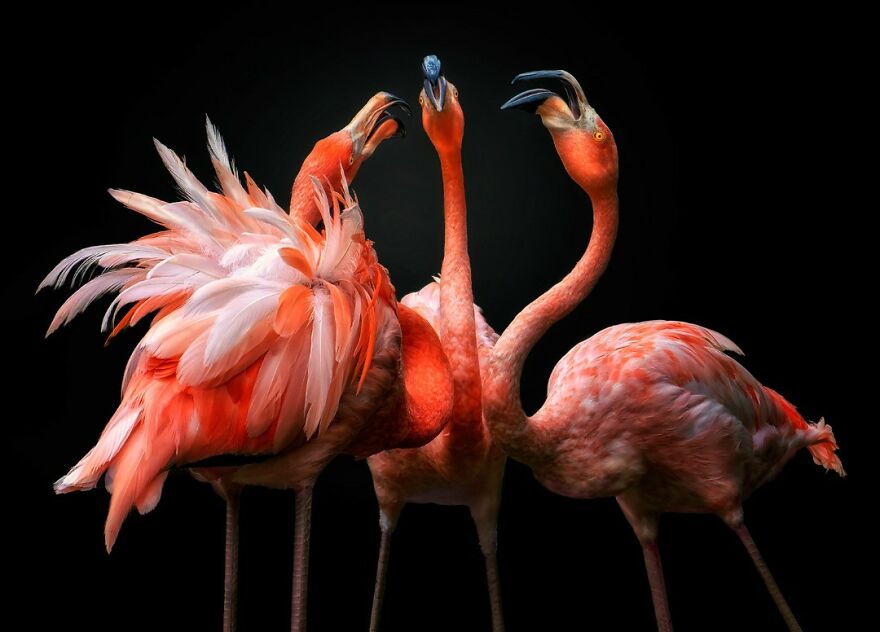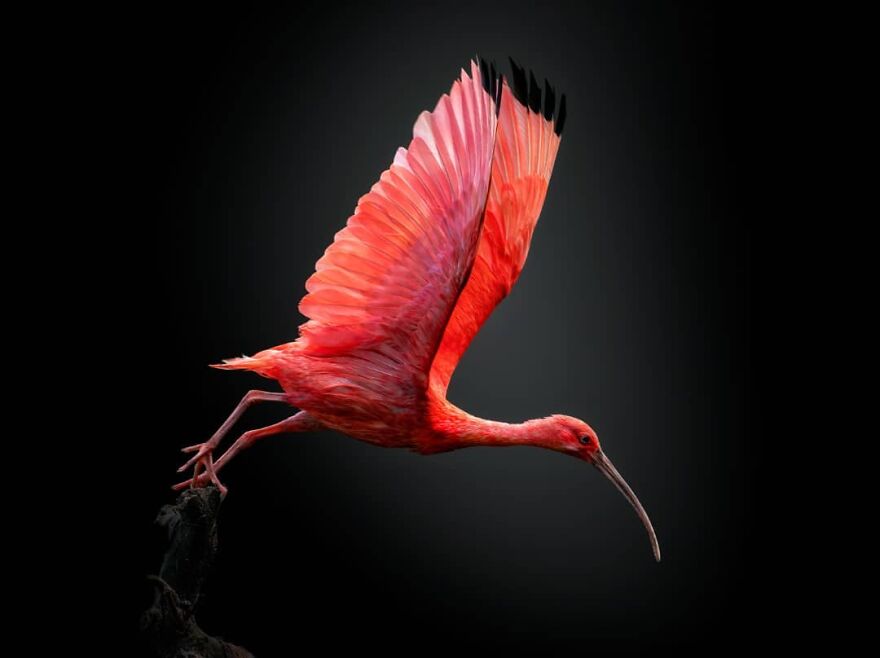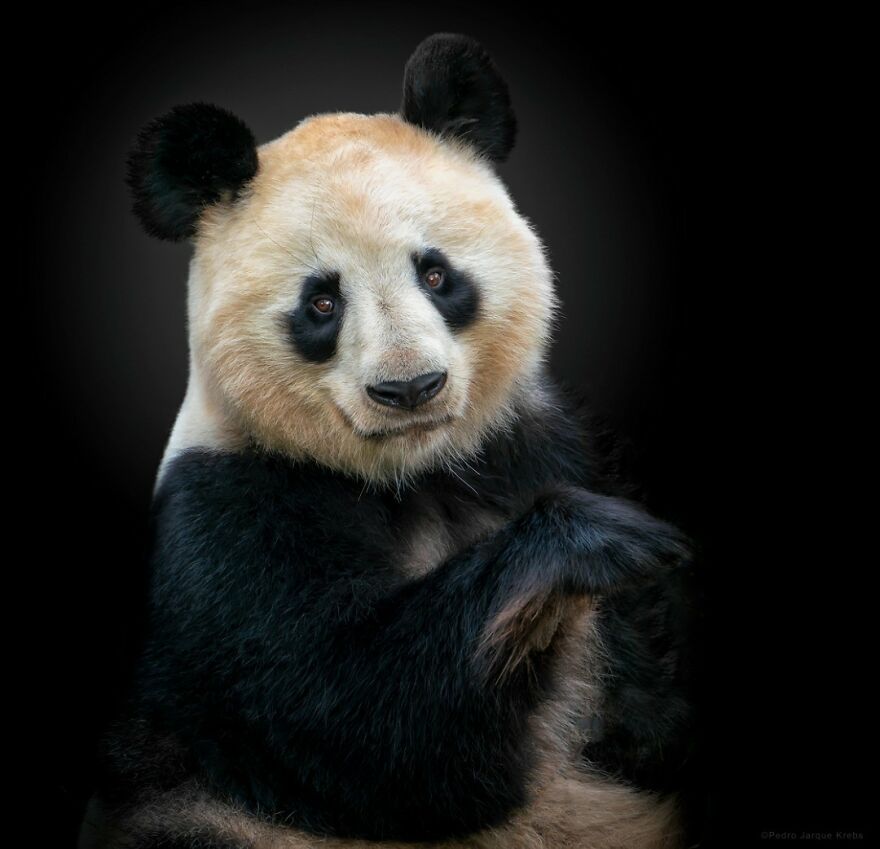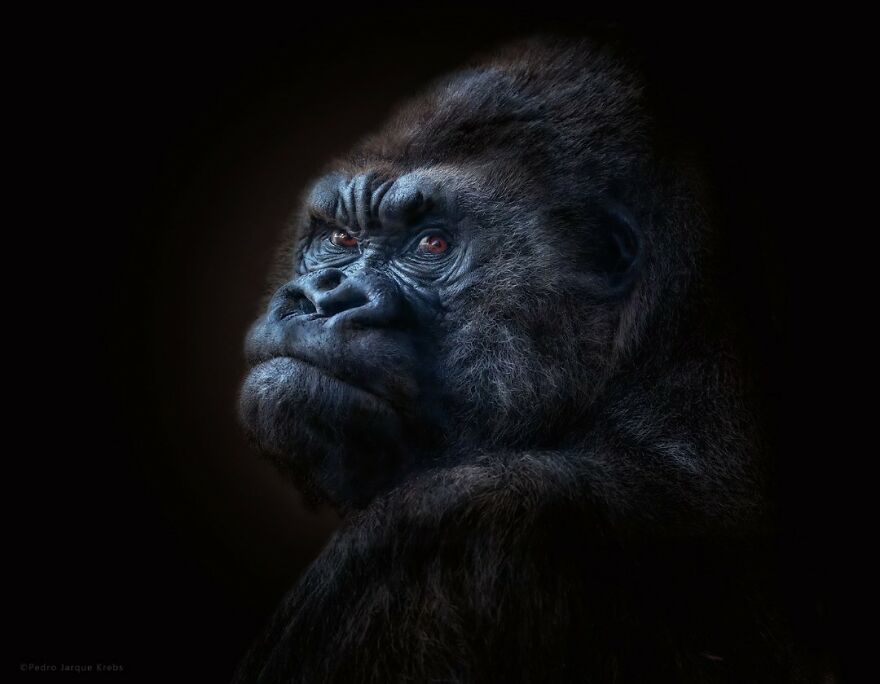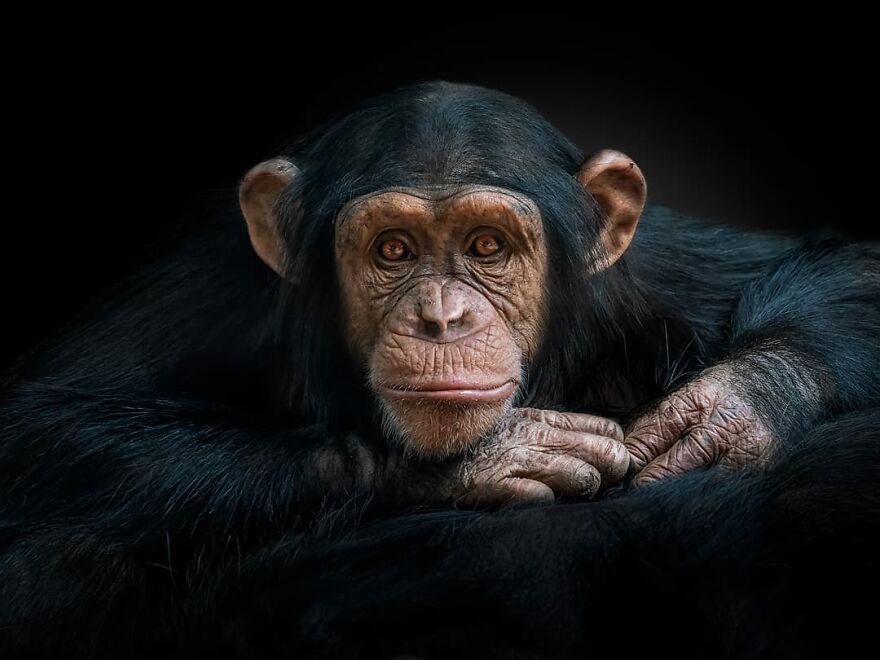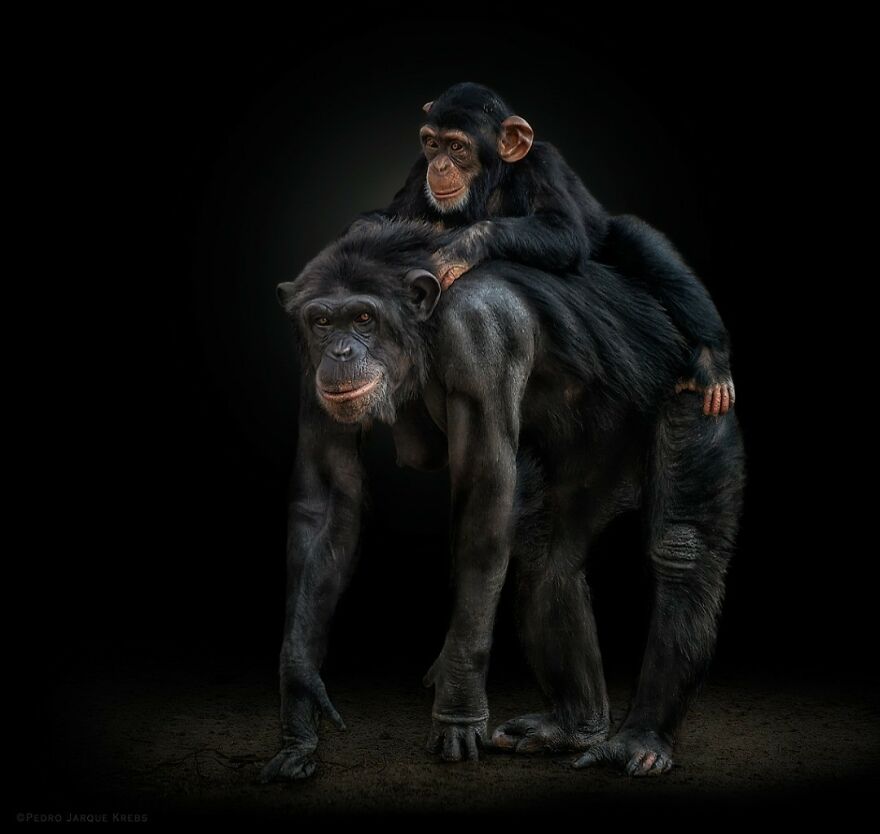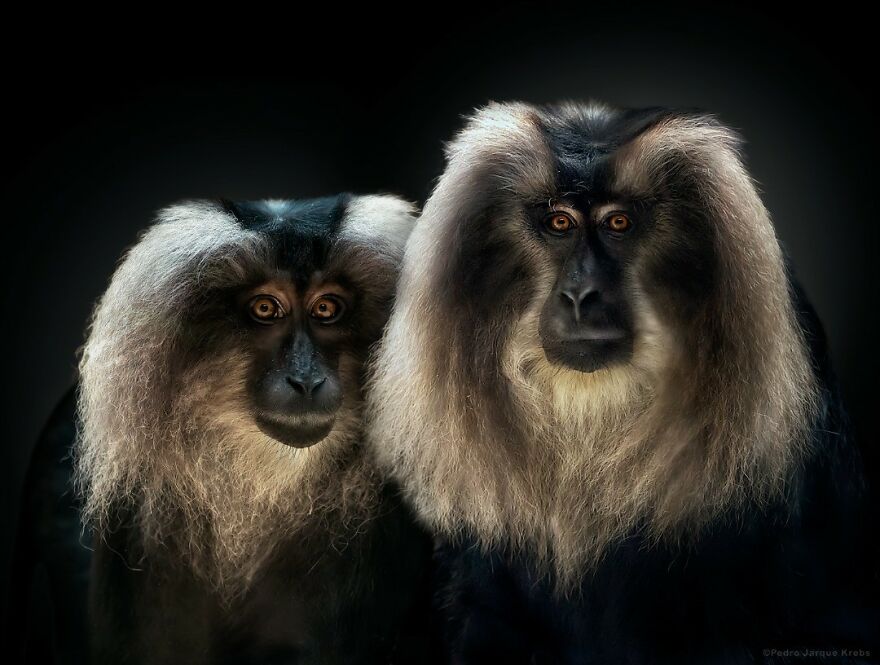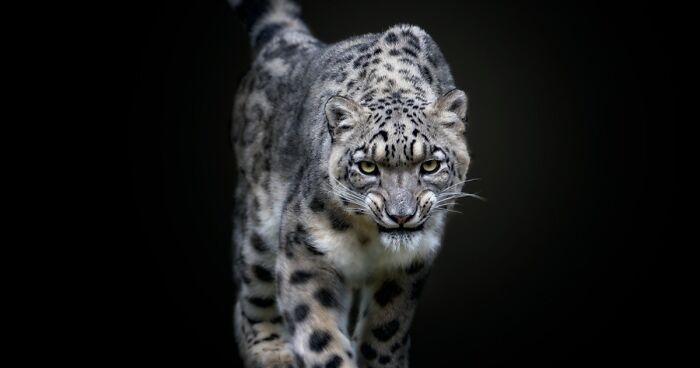
30Kviews
Stunning Portraits Of Wild Animals Taken From Up Close By This Photographer (75 New Pics)
Most people say that they love animals and would not want to hurt them in any way, however, the statistics of the damage done to nature and its residents in the past years say otherwise.
This Peruvian photographer named Pedro Jarque Krebs, captivated by the diversity in the animal kingdom, got inspired to photograph species in a unique way. By photographing animals from a close range, he aims to raise awareness about the devastating loss of animal populations, which have declined by 60% over the past 50 years. Through his photographs, Krebs sought to break down the barriers between humans and other species by capturing intimate moments, giving dignity to the animals, and reminding us that we are not the central focus of the universe, but rather a small part of the intricate ecosystem that we must strive to protect.
We invite you to get closer to these wild animals by looking through Pedro's photos of them. And for more of this photographer's pictures on Bored Panda, see part 1.
More info: Instagram | pedrojarque.com
This post may include affiliate links.
A Pair Of Amazonian Jaguars
Bengal Tiger
There are approximately 24,000 tigers left in the world, of which only about 3,200 are in the wild and about 20,000 are in captivity. 100 years ago there were more than 100,000 in the wild. This means that we have killed more than 96% of the tiger population in 100 years.
White tigers are not a natural occurrence. There was one male with a genetic mutation all of these white tigers that you see in public are inbred trying to create the perfect white tiger which has no Stripes at all and they all go back to the same one poor guy. Just like with a lot of animals when you breed for white you end up with deafness and all kinds of other mutations. I've taken care of some really sweet but massively messed up animals all in the name of achieving the great white tiger. So now you know...btw Yes, that is me in the profile pic along with Ceaser...
Wow, that would mean that tigers in the wild, live to be over 100 years old!
I appreciate and love tigers However humans failure to care for their overall welfare and the fact we allow private citizens to keep them is Beyond Cruel! I have seen some of these cages and swear my housecat would go nuts being in something so small. There is such a small gene pool & people's failure to keep breeding records means inbreeding is a very real possibility.SO SAD EVERY TIME I SEE A TIGER NOW!
Snow Leopard
Also known as the ghost of the mountains, the snow leopard is one of the most enigmatic big cats in the world. Because of its geographical isolation, very few have been able to see it in the wild. Its population is estimated to be only about 4,000 specimens, and it is on the red list of species in danger of extinction due to climate change.
Cheetah
From 100,000 specimens in the 20th century to 7,500 specimens today, the cheetah joins the long list of species doomed to disappear. As the human population grows, the territory of these animals is reduced, and the last wild spaces are disappearing, as well as the hope of survival.
Snow Leopard
For the inhabitants of the Himalayas, the snow leopard is a mystical creature, a sacred totem with the power to remove sins from the past lives of people who are fortunate enough to see one. They also believe that killing a snow leopard restores all these past sins to the killer’s present life. It is a very elusive and solitary animal that inhabits remote parts of the Himalayas, and very few people have ever seen one in the wild. It is also considered the guardian of all sacred animals and a link between the material and spirit worlds.
Red Fox
Jaguar
America belonged to the jaguars. Considered a god by pre-Columbian peoples, it is the largest cat in America and third in size after the lion and tiger. Its only predator is man, and therefore its population has been drastically reduced. Despite being a protected species, illegal trade still exists and it is already on the red list of threatened species.
Asian Elephant
Asian elephants have several differences from African elephants, and in principle, they cannot be crossbred. There has only been one hybrid breeding of these two elephant species, but it did not survive. Asian elephants have smaller ears, females have no fangs among other differences. They are now also endangered.
Of course these beautiful animals are endangered and it’s the fault of humans.
Jaguar
This is Naya, a female black jaguar that is part of the European Endangered Species Program (EEP) and lives at @loroparque in Tenerife. Naya was a mother to two beautiful jaguars that were born in early 2020, reviving hope for this American species whose population is in decline. Breeding programs are a fundamental part of the fight for biodiversity conservation.
Yin And Yang
From Mexico, through all of Central and South America, the jaguar's territory is very wide. Considered a god by pre-Columbian peoples, it is the largest cat in America and third in size after the lion and tiger. Its current population is in decline, and it is on the red list of threatened species. Its only predator is the man. In this photo, the black panther is the female jaguar and the other is the male.
Giant Panda
Arctic Wolf
Black Fury
Black panthers are jaguars (or leopards) with melanism, the opposite of albinism, i.e. an excess of black pigment. In this case, it is a jaguar (Panthera onca). In Peru, it is known as otorongo, a word of Quechua origin that means jaguar. It is the largest feline in the Americas.
Asian Elephant
Elephants are extremely intelligent and social animals. They have a brain structure similar to that of humans and are capable of experiencing grief, compassion, cooperation, and self-awareness, among many others. Baby elephants are cared for by their mothers, but the other females of the group, which has a matriarchal structure, also participate. In this way, the young female elephants are trained in their future role as mothers.
Iberian Wolf
Almost extinct in 1970, the Iberian wolf has recovered a fraction of its territory and has been saved in extremis from its disappearance, mainly because it has been considered a plague and encouraged hunting and persecution. Despite being a partially protected species, conflicts with cattle breeders mean that this species is still seriously threatened, and with a current population of less than 3 thousand specimens in Spain, hundreds are still being killed every year.
Ignorance is NO Excuse for the extinction of a species! If you don't have an Apex Predator in place all subsequent species down through the food chain outgrow their areas, leaving nothing for some species and an over abundance in other species. Having the Apex Predator means all other species are kept in check, as long as you have your Apex..!
Leopard
Leopards and jaguars share characteristics that sometimes make them difficult to distinguish. But the first clear difference is their ecozone. The jaguar lives in America while the leopard lives in Africa and Asia. The leopard is less robust than the jaguar, has less bite strength, and is more elusive, due to greater competition with other animals such as lions or tigers. The leopard is currently in critical danger of extinction, with less than 25 thousand specimens in the world.
Black Rhinoceros
$60,000 USD a kilo, that's what a rhino horn costs on the black market. More expensive than gold. But life is priceless. Unlike elephant tusks, which are made of ivory, rhino horns are made of keratin, the same material as nails. But the ignorance and superstition of some humans give it non-existent medicinal properties. As in everything, as long as there are buyers, there will be sellers. This will only end in education.
Jaguar
This black panther is actually a jaguar with excess black pigmentation that hides its markings. It's called melanism, the opposite of albinism. However, the spots of the original coat prevail and with proper light can be distinguished. The jaguar population has been seriously diminished in the last decades, and currently, only about 63,000 would be left in the wild.
Arctic Wolf
Snow Leopard
Snow leopards have a long, fluffy tail measuring about 1 meter that serves a dual function, balancing their movements in the mountains and as a protection from the cold. In the 1990s it was on the verge of extinction, but conservation programs have managed to recover part of this feline whose current population is around 5,000 specimens in the wild.
White Lion
This unique variation in the color of the lion is due to a rare genetic mutation. There are an estimated 300 white lions worldwide, and less than 13 in the wild, as their color does not help them camouflage for hunting. It is a symbol of divinity and good luck in Timbavati, South Africa, where they originate, and seeing them in the wild is very unusual.
Baby Gorilla
Gorillas are mainly herbivores, although they may occasionally eat some insects. Their diet consists mainly of plant leaves, roots, fruits, berries, and fungi. They have to ingest large quantities to satisfy their energy needs, so they spend most of the day eating.
Grey Crowned Cranes
The Grey Crowned Crane is considered a symbol of longevity and wealth in Rwanda. Coveted by wealthy people who want it as a pet, this species is a victim of its beauty. In the last 45 years, its population has fallen by 80%. According to greek mythology, the flight of a crane inspired the god Hermes to invent the Greek alphabet. And in Taoism, this bird represents longevity and immortality.
A Battle Between Flamingos
The rivalry for the females' attention causes the males to unleash all their weapons. This photo was awarded the title of Best Photographer of the year in 2018.
Fun fact: flamingos are pink thanks to certain pigments in the food that they eat. (things like shrimp and fly larvae)
Brown Bear
More than 1 million living species could be extinct in a few decades, according to the latest UN report. This is an unprecedented decline. This loss is a direct consequence of human activity. If we do not react urgently, the accelerated loss of biodiversity will become a threat to our own survival.
Flamingo Checking Its Egg During Incubation
Flamingos are monogamous. Between May and August the female lays an egg in a volcano-like nest she has built in the mud, and both parents take turns incubating it. Once hatched, both parents will care for the chick until it reaches maturity, which can take up to six years.
Bornean Orangutan
In orangutans, motherhood is not an instinctive behavior, but a learned one, so socialization is fundamental from an early age, in order to be able to apply what they have learned in the future. That is why it is very important that the orangutans spend as much time as possible with their family, which can last until they are 8 years old when they reach sexual maturity.
Snow Leopard
Chimpanzee
A recent study has found that we share around 99 percent of our DNA with chimpanzees, making them our nearest relatives. From a genetic perspective, this makes them almost identical to us. There are researchers who propose to have them included in the genus Homo, i.e., humans, a source of great controversy for the scientific community. It is estimated that around 200,000 remain in the world and are on the red list of endangered species.
As much as Chimpanzees are highly intelligent they also have a hierarchy system. When they feel the need for meat to supplement their diet they have been known to corner smaller monkeys and rip them apart to share in the group. It's not an everyday event but it does happen..
Zebras
Are zebras white with black stripes, or black with white stripes? Studies have concluded that in their fetal stage, their pigmentation is totally black, which they later lose in the areas where the white stripes appear. In this case, they have acquired a beautiful orange dye after several days of rain in which the zebras have spent their time wallowing in the mud.
Roseate Spoonbill
Gorilla
There are only 2 main species of gorillas, the western and the eastern ones. In this photo, it is a male western silverback gorilla. There are between 80 and 100 thousand left in the wild and they are on the red list of endangered species.
The look on a parents face when they've just told the kids to get their shoes on for the 5th time.
De Brazza's Monkey
The white beard of these primates serves to give the appearance of a large menacing mouth to deter predators, although that penetrating gaze may be enough.
Mandrill
The madrill is one of the most colorful mammals. It is a social animal that lives in large groups composed of numerous females (up to 20) and their offspring, led by a dominant male. Their territory is limited to a small region of West Africa and it is an endangered species.
Arctic Wolf
After several days of rain, the white coat of this arctic wolf has been dyed red. The Arctic wolf is one of the largest known wolf species. It lives in very remote and icy regions of Alaska and the north of North America and is characterized by its white fur. Despite inhabiting regions little frequented by humans, it is also endangered, particularly as the result of climate change and habitat loss.
Leopard
Today May 22 is the day of biodiversity. To celebrate it I share this photo of a magnificent leopard. This feline is considered one of the "big five". Solitary and territorial, it hunts at night and sleeps during the day. Its hearing is 5 times more powerful than human hearing.
Jaguar
Black panthers are jaguars (or leopards) with melanism, the opposite of albinism, i.e. an excess of black pigment. In this case, it is a jaguar (Panthera onca). In Peru, it is known as otorongo, a word of Quechua origin that means jaguar. It is the largest feline in the Americas.
White Lioness
There are 300 white lions in the world and they owe their color to a rare genetic mutation. Female lionesses can weigh 180 kg and measure up to 2.5 meters standing on their hindlegs. They are extremely powerful. Here we see a lioness sharpening her claws and training for the hunt.
Toucan
In the indigenous mythologies of South America, the toucan is considered a sacred animal that serves as a messenger, because it is said to master all animal languages. It is also a link between the material and spiritual worlds. Its totemic function is communication.
Lion
Seahorse
This wonderful animal has amazing characteristics. They have the ability to change color to protect themselves from predators since they are not very good swimmers. The males are the ones who carry the pregnancy and can have up to 2000 offspring in each litter. And in spite of this great prolificacy, it is in danger of extinction. The man, of course, is its main predator.
How cute. I watched a video of the male giving birth and it was amazing.
Spanish Fighting Bull
Fighting bulls are a breed of cattle specially bred for bullfighting. Today there is a great ethical debate about the prevalence of this ancient tradition that is considered to be decadent as we move forward in recognizing a consciousness in animals. According to the Cambridge Declaration on Consciousness, (2012), most animals, including birds, possess near human-like levels of consciousness. Although they lack a neocortex, their neural networks allow them to manifest conscious behaviors, such as pain, pleasure, and fear, and even to recognize themselves in a mirror and to dream.
African Elephant
Giant Panda
Wolfs
A young wolf waits impatiently for an adult in his pack to leave him a small piece of his prey.
Jaguar
Lion
Giant Panda
Tumbling is a common behavior in panda bears. They can mean several things, from a simple moment of fun to the announcement of the fertile period in females that only lasts 48 hours. In these photos, it was the female in heat. As part of an important international conservation program, the female was inseminated and it will not be possible to know if gestation occurred until the birth, which can take place between 3 and 6 months later. The survival of this species depends on the success of these conservation programs.
Scarlet Ibis
This beautiful bird is native to South America. Like the flamingos, the bright red color of the scarlet ibis comes from the pigments in the crustaceans it feeds on.
Bornean Orangutan
Orangutans have a gestation period of 9 months, like humans. Females have only one offspring and take care of them without the collaboration of the male. For the first 7 years, the baby will not be separated from its mother.
Indian Rhinoceros
Asian rhinos are distinguished from African rhinos mainly because they have only one horn instead of two, and because of their armor-like skin. Having been hunted by poachers for decades, their population has been seriously threatened. Currently, there are protection programs that have been relatively successful.
Scimitar Oryx
You are looking at an extinct animal. The scimitar oryx was declared extinct in the wild in the year 2000 due to excessive hunting. Now there are only about 2500 specimens left in captivity. Unfortunately, it is the fate of many iconic species, such as lions, elephants, rhinoceroses, giraffes, and a long, etc. We would all like to see them in the wild, but today their only chance of survival is in captivity. That's how sad our world is, and it's not getting any better.
Brown Bear
Giraffe
Baby giraffes weigh between 60 and 80 kg at birth and measure almost 2 meters. As soon as they are born, they are ready to walk and face a world full of dangers. Within a few hours, they can even run. The gestation period goes from 400 to 460 days and the mother's care extends a little more than a year. Giraffes can live 20 to 25 years in freedom. Giraffes hardly ever sleep. They only sleep between 10 minutes and 2 hours a day, and do so standing up.
Flamingos
Gorilla
Crocodile Monitor Lizard
Golden-Headed Lion Tamarin
This monkey, endemic to a small region of the Bahia rainforest in Brazil, is threatened due to the destruction of its habitat. It is estimated that there are about 6,000 specimens left in the wild.
African Elephants
Sri Lankan Leopard
Mantled Guereza Or Eastern Black-And-White Colobus
Jane Goodall discovered that chimpanzees also sporadically ate meat hunted by themselves, especially from colobus, sometimes using spears or tools to hunt them. But they are not easy prey. They carry out most of their activities in the treetops and rarely come down from them. They have an impressive black and white coat that characterizes them, and they lack thumbs, a natural adaptation to their tree life.
The Choir Girls
🎵🎵 Come fly with me, let's fly, let's fly away.If you can use some exotic booze, There's a bar in far Bombay🎵🎵
Giant Panda
Gorilla
Gorillas, chimpanzees, and orangutans are the genetically closest animals to humans. But there is a paradox. Chimpanzees share 99 percent of our DNA, meaning that there is less than a one percent difference between us, but gorillas and humans share part of that one percent that differentiates us from chimpanzees. Scientists are therefore curious to find what exactly it is that makes us Homo sapiens. Is the thing that gives us a reason and abstract thought really so genetically insignificant? The extinction of the gorilla may mean we will never know the secret.
Creation vs evolutionary changes are always up for discussions. When we discover the difference, and why and when, we may be surprised!
Chimpanzee
Chimpanzees
According to scientific studies, prolonged breeding would benefit intelligence. A chimpanzee's childhood lasts approximately 4 to 6 years, but they will stay close to their mothers until they are 9 years old. This allows them to acquire the necessary knowledge to achieve their later independence, although in many cases they will maintain the bond with their mother throughout their lives.
Beautiful photos........we're really screwing things up on a cosmic level.
These photos may be our only change to see these animals, so thank you for showing them to us all.
Beautiful photos........we're really screwing things up on a cosmic level.
These photos may be our only change to see these animals, so thank you for showing them to us all.

 Dark Mode
Dark Mode 

 No fees, cancel anytime
No fees, cancel anytime 


